The Caspian Policy Center Hosts its 7th Trans-Caspian Forum in Washington, DC
Recent Articles
Author: Caspian Policy Center
05/26/2023
WASHINGTON, D.C. - May 25, the Caspian Policy Center hosted its 7th Annual Trans-Caspian Forum at the National Press Club to provide a platform for engagement between U.S. public and private officials, and officials from the Caspian Region. This event was hosted in coordination with the embassies of Armenia, Azerbaijan, Georgia, Kazakhstan, Kyrgyzstan, Uzbekistan, Tajikistan, Türkiye, and Turkmenistan.
The Trans-Caspian Forum, consisting of one ambassadorial panel and two expert panels, addressed the most pressing opportunities and challenges in the Caspian Region, including energy security, regional connectivity, security issues, and economic diversification.
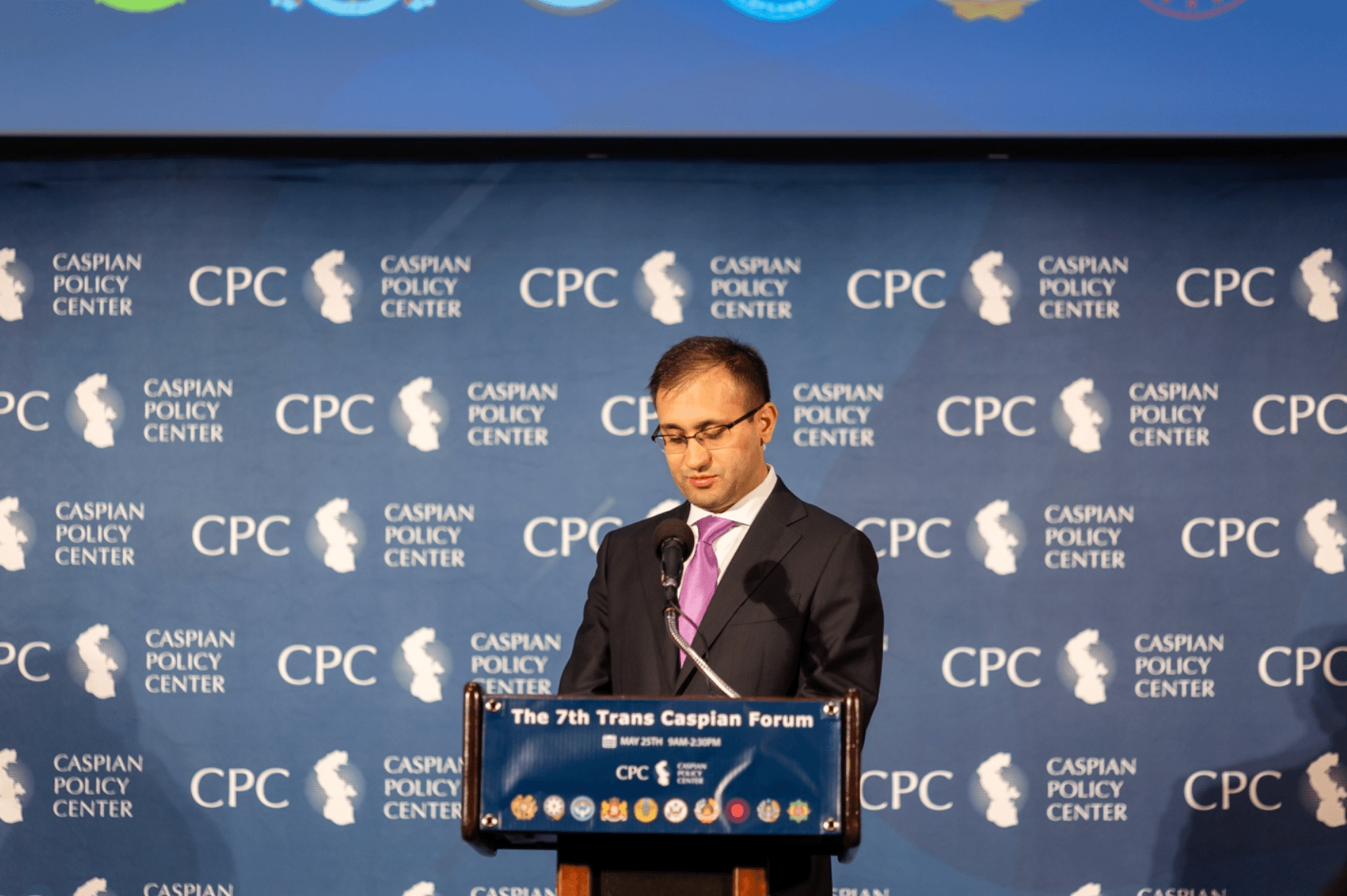
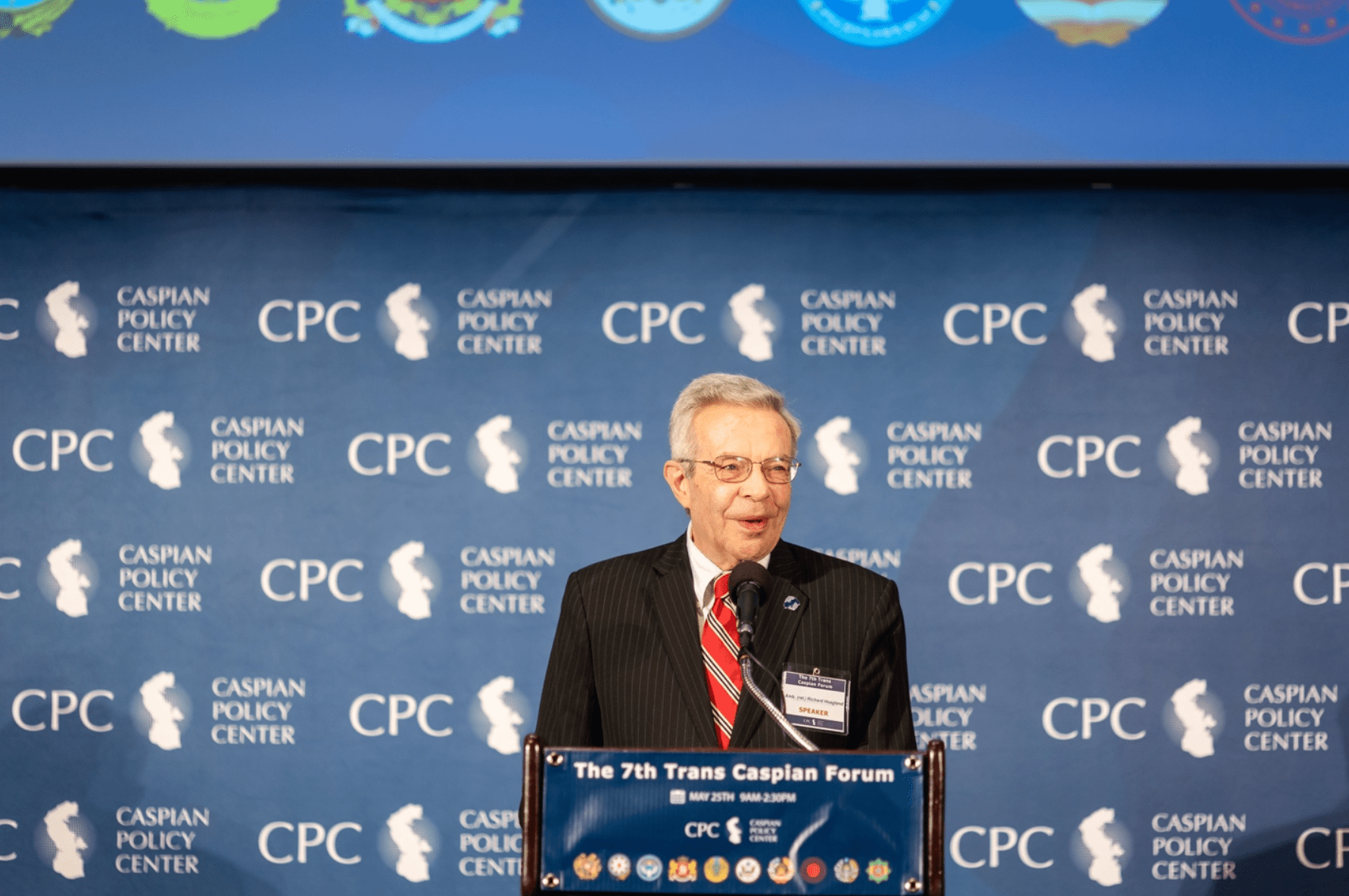
Efgan Nifti, CEO of the Caspian Policy Center, opened the event by emphasizing the Caspian Region’s strategic significance for the United States and the international markets.
“The Caspian region is located at the crossroads of Europe and Asia making it a critical transit hub for trade and transportation networks. It provides access to important markets and serves as a gateway to Central Asia and beyond,” Efgan Nifti said.
However, he added that the shifting global paradigm has complicated the regions partnerships:
“While Russia has traditionally held a prominent position, the interests of other actors are growing in the region. Just last week, China held its China-Central Asia Summit, underscoring its growing engagement with the region.”
“With the presence of these countries in the region, it has become increasingly imperative for the United States to step up its presence in to continue to support the independence, sovereignty, and territorial integrity of the states of the Caspian region,” Efgan Nifti said.
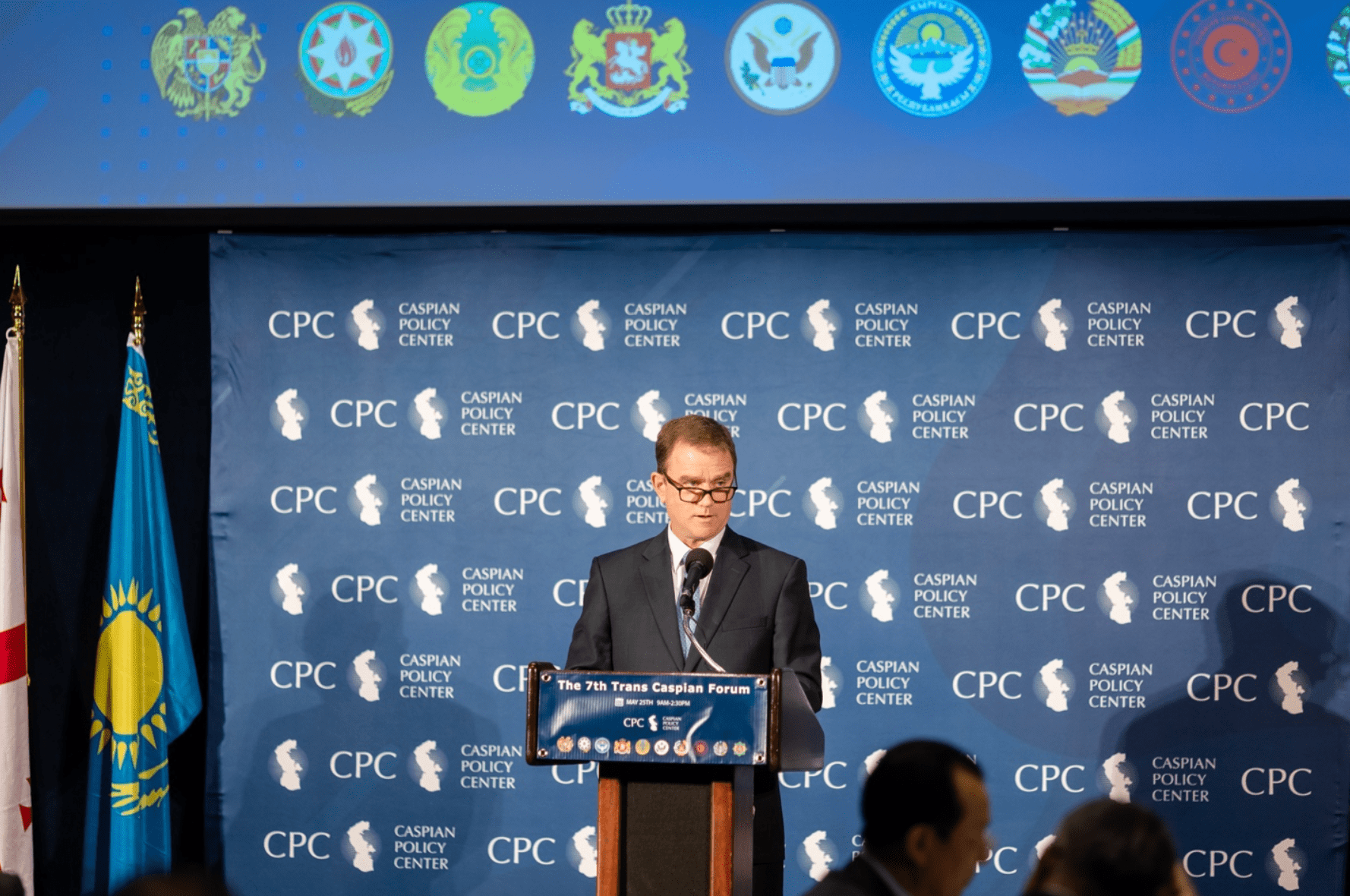
Nicholas Berliner, Senior Director for Russia and Central Asia at the National Security Council delivered the first keynote address.
“Central Asia has always been a crossroads, and the United States recognizes the important contributions that the region can make to many global priorities, such as energy security, food security, and regional stability,” Nicholas Berliner stated.
He continued, adding that “Times of change and uncertainty also create opportunities and we see this moment as a time to strengthen our relations with this important region.”
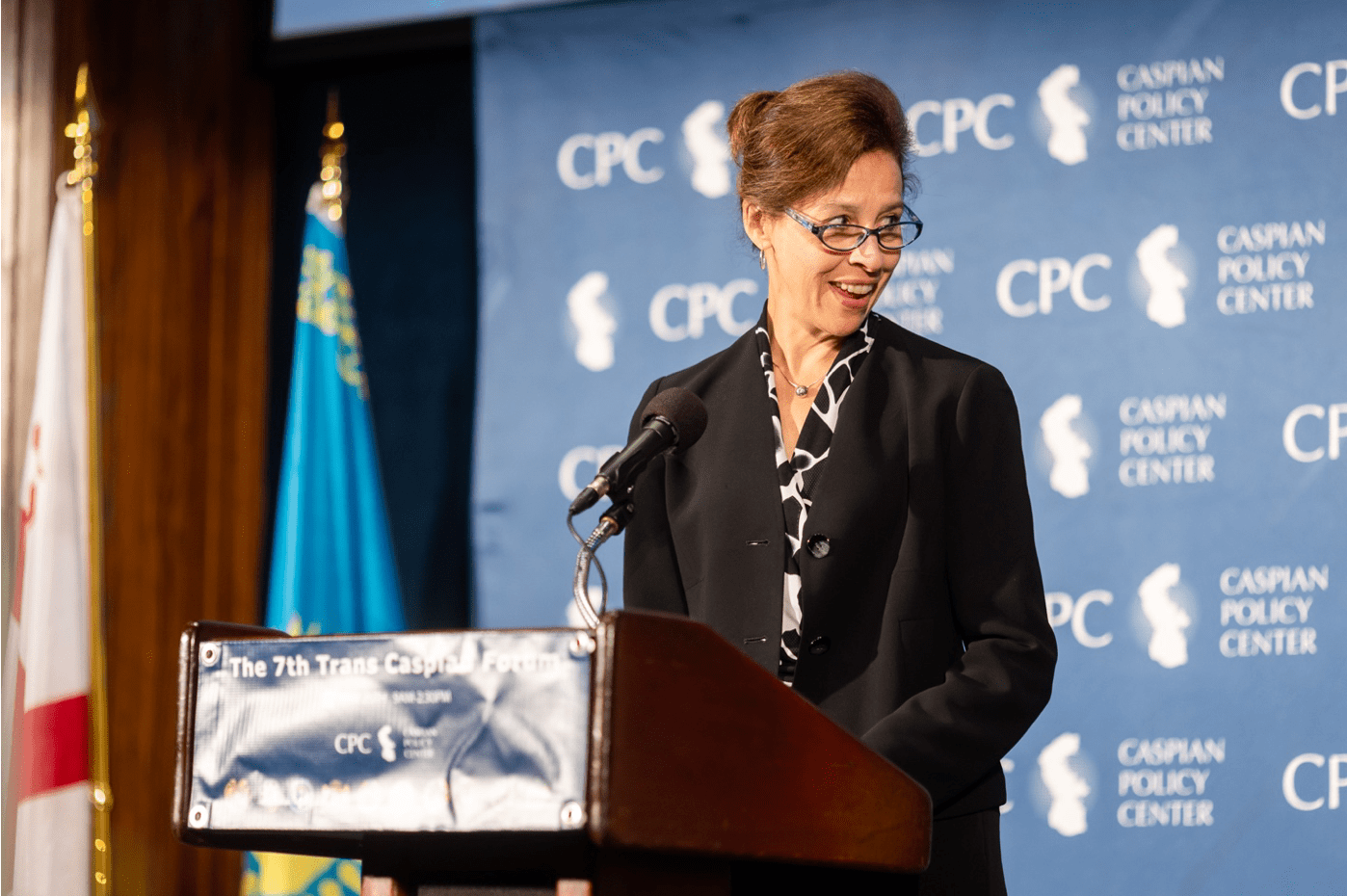
Laura Lochman, Deputy Assistant Secretary of State for Energy Diplomacy, Bureau of Energy Resources, U.S. Department of State, delivered the second keynote address of the event. She highlighted the region’s role in global energy diversification efforts and in the clean energy transition.
“The United States is eager to work with Central Asian countries to accelerate methane reduction... through project finance, policy and regulatory strengthening, and other technical assistance,” Laura Lochman stated.
And for the United States, “Building stable, reliable, and secure supply chains for critical minerals is critical to our energy transition and our engagement with Central Asia.”
“We aim to address infrastructure needs in the Middle Corridor trade route, across the Caspian and through Azerbaijan into Europe, to better allow countries to export critical minerals to the global market,” Laura Lochman added.
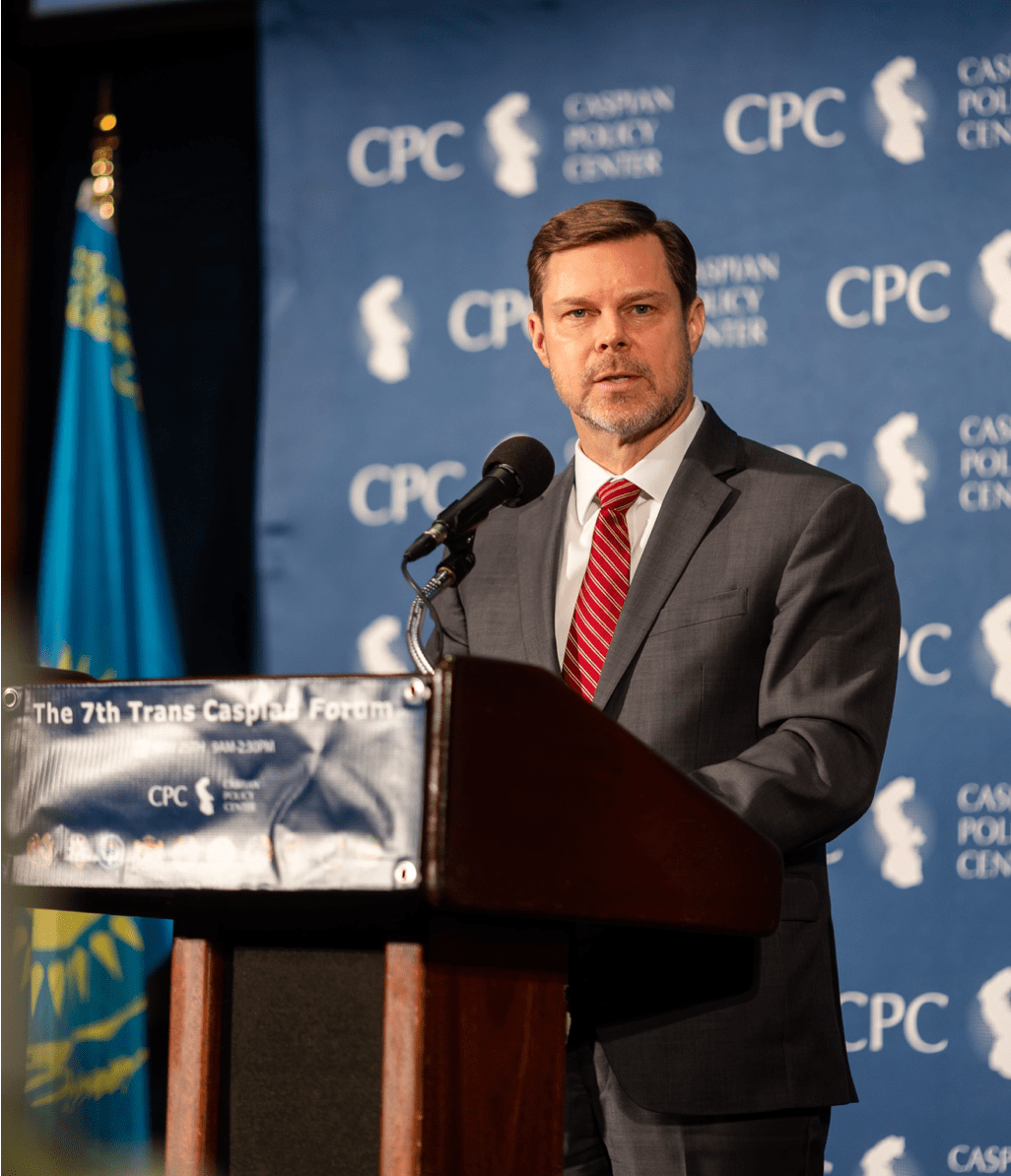
Brian Stimmler, the Acting Deputy Assistant Secretary of State for Central Asia for U.S. Department of State delivered the third keynote address of the event. He highlights U.S. engagement with the Caspian region, noting the “extraordinary change taking place” with U.S. relations.
“This past year has seen more high-level U.S engagement and centralization than at any other time in the last 30 years since these countries gained independence,” Brian Stimmler explained.
He continued, adding that U.S. policy towards the region is undergoing change. “This year alone, the United States has devoted over $100 million in assistance and engaged in over 40 programs in the C5+1 format.”
“The U.S. vision for its relationship with Central Asia is not confined to ‘government to government’ interactions, rather we believe that a healthy partnership with the region demands a multifaceted engagement across government, business, and civil society,” Stimmler added.
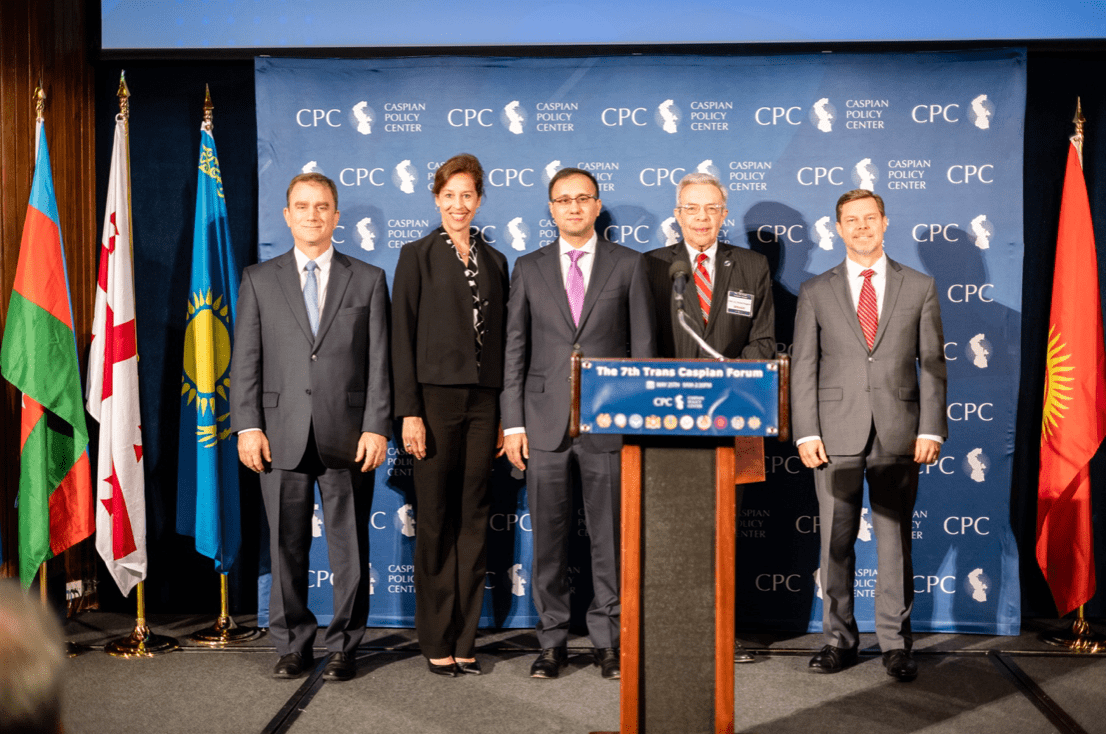
The Ambassadorial panel included the Ambassadors of Azerbaijan, Georgia, Kazakhstan, Kyrgyzstan, Turkiye, and Uzbekistan. The ambassadors detailed the current challenges and opportunities their countries are facing under the changing global paradigm.
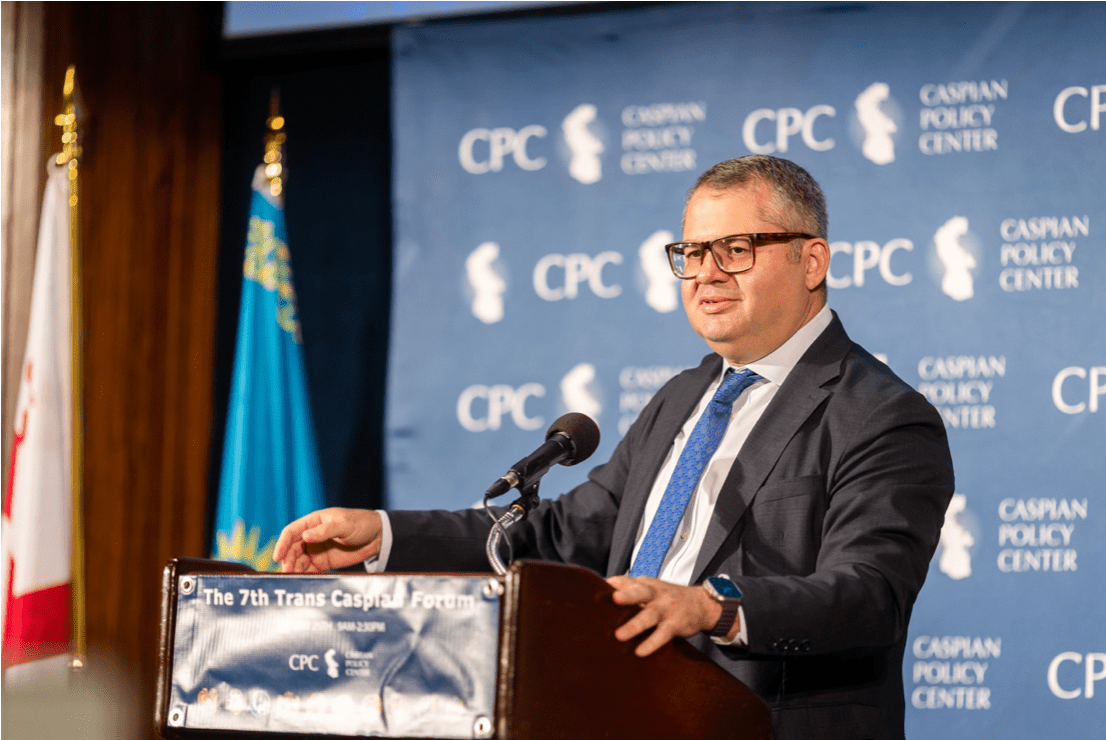
Ambassador Khazar Ibrahim of Azerbaijan detailed the importance of U.S.-Azerbaijan engagement:
“Our strong cooperation with the United States of America is key not only for Azerbaijan, but also for the entire region,” said Ambassador Ibrahim.
He continued, describing Azerbaijan’s potential in the field of energy, “Azerbaijani renewables will be flowing to Europe. And, on top of this increase, Azerbaijani natural gas exports annually to Europe will now double by 2027.”
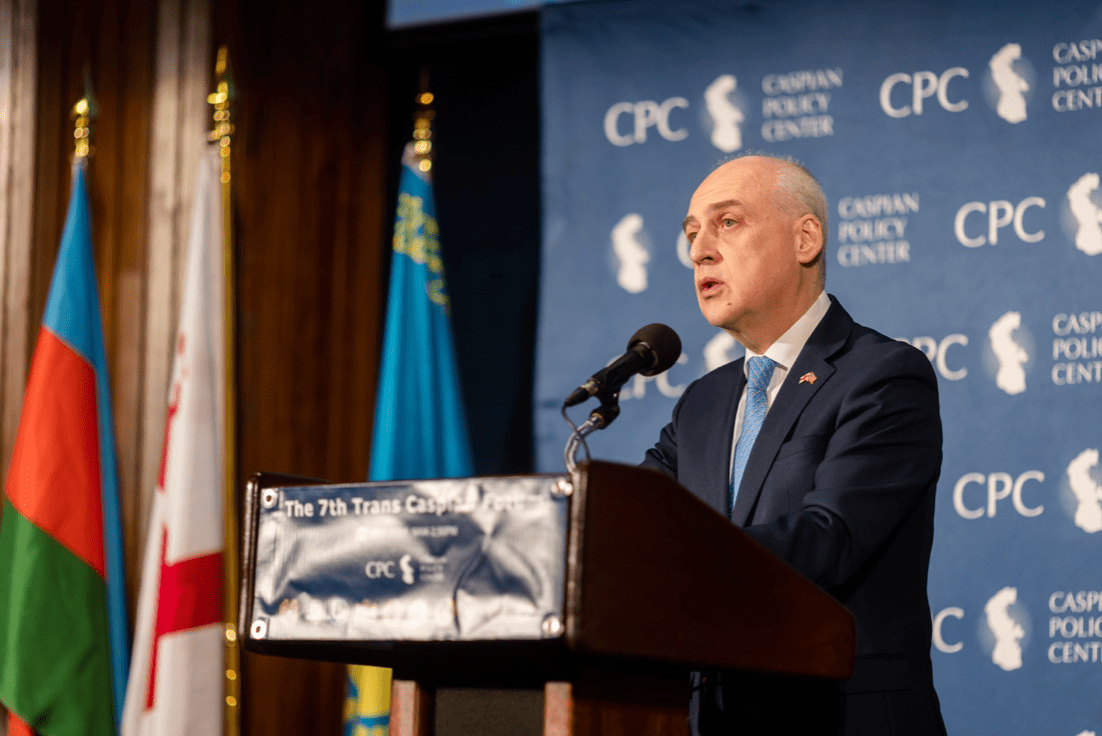
Ambassador David Zalkaliani of Georgia discussed Georgia’s desire to expand engagement with the United States and European Union (EU), expanding on Georgia’s path towards EU accession.
“We are working hard to address each of the European Commission’s 12 recommendations to be recognized as a candidate,” Ambassador Zalkaliani said.
Ambassador Zalkaliani described the importance of the Black Sea electric cable, stating “This ambitious project will serve to bolster European energy security while aiding the EU's green transition through access to clean Caspian energy.”
“From commercial diplomacy perspective, we want more of the US in Georgia and more Georgia in the United States.”
And to reach this goal, Ambassador Zalkaliani added “Georgia has fostered a business-friendly environment and extensive international trade that has enabled us to carry weight in our partnerships.”
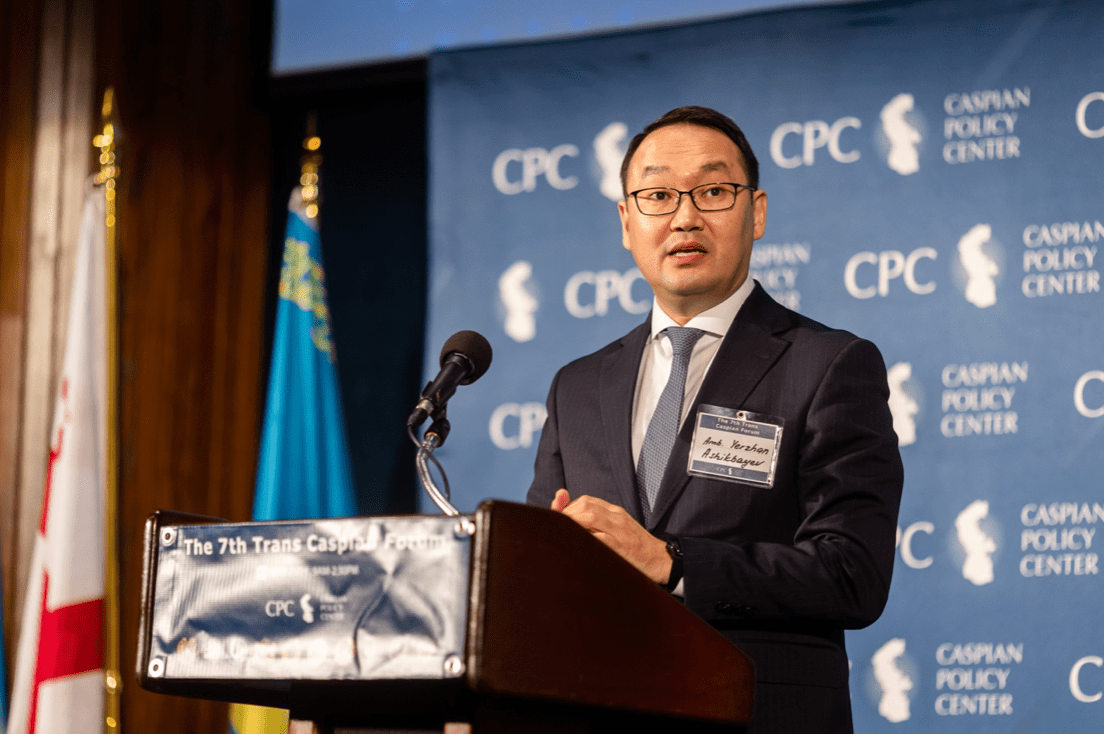
Ambassador Yerzhan Ashikbayev of Kazakhstan spoke on the importance of infrastructure projects, regional connectivity, and the development of the Middle Corridor.
“Kazakhstan has been a crucial contributor to transportation connectivity, and a prominent advocate of regional economic integration with our neighbors and global community.”
“Last year, the volume of cargo transported through the Trans-Caspian route doubled and reached 7.41 million tonnes,” Ambassador Ashikbayev stated.
In regard to the Middle Corridor, Ambassador Ashikbayev added “We’ve adopted and are working on a roadmap for the simultaneous elimination of bottlenecks and the development of the Middle Corridor, indicating specific projects with precise parameters, deadlines, and responsible performance.”
“The Trans-Caspian route might be a game changer, not only for the region, but for the global community,” Ambassador Ashikbayev stated.
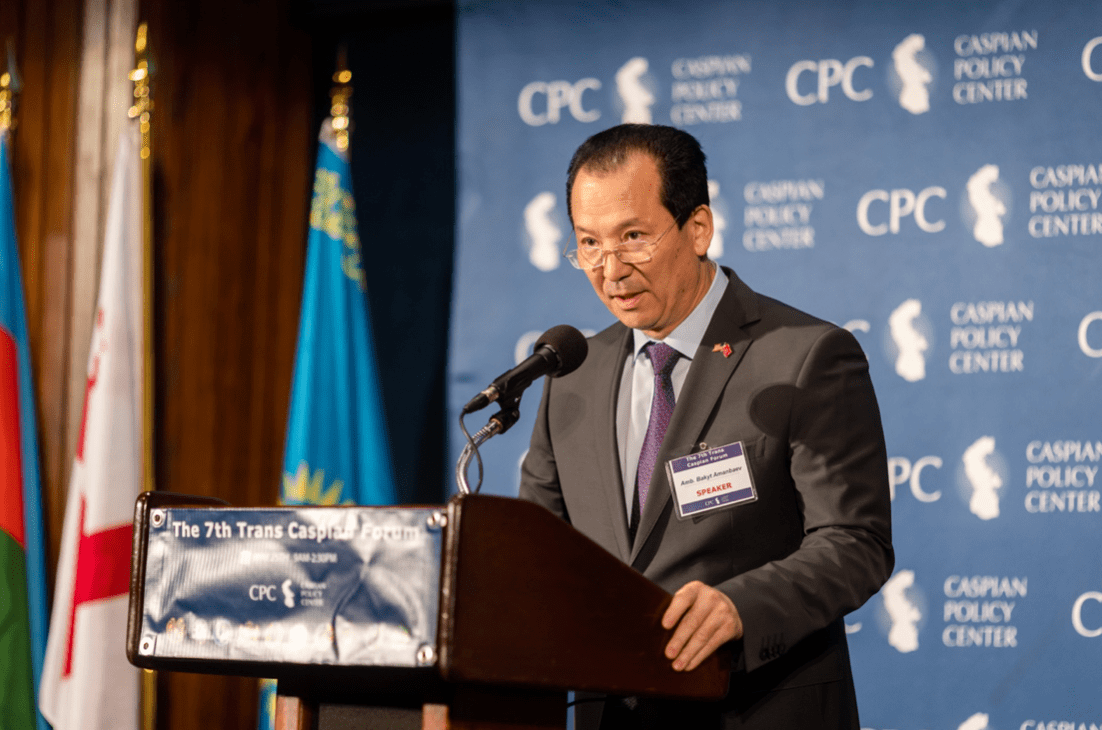
Ambassador Bakyt Amanbaev of Kyrgyzstan highlighted Kyrgyzstan’s importance in regional water security and its potential in the field of critical production resources.
“Large scale construction is an important step towards ensuring regional water security.”
“Our region has rich resources and great opportunities for the development of regional comprehensive cooperation,” Ambassador Amanbayev added.
He emphasized the importance of infrastructure investments in order to reach the region’s untapped potential.
“Investment in transportation infrastructure projects and the creation of new transport and trade links is very important for the development of Central Asia,” Ambassador Amanbayev stated.
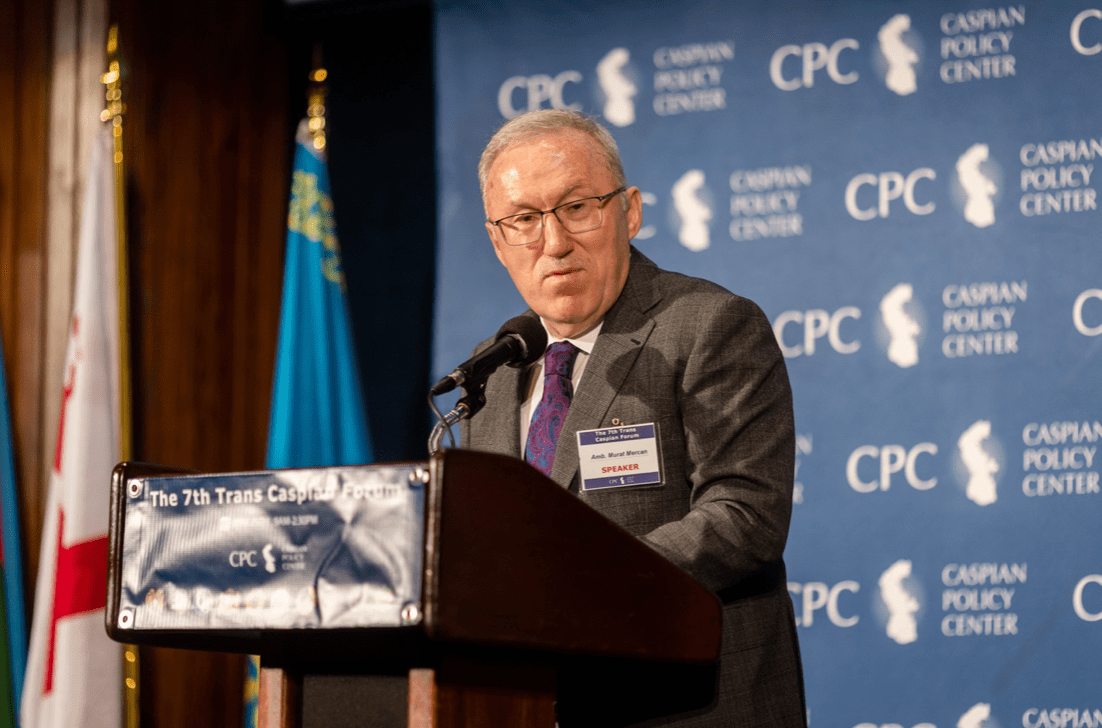
Ambassador Murat Mercan of Türkiye described the mutual interests of Turkiye and the United States in the Caspian Region.
“From the United States and Türkiye, there is a great potential for partnership investment in the Caspian region.”
“The Caspian region provides a historic opportunity for a modern cooperation, with its critical position for European and Asian connectivity,” Ambassador Mercan said.
He described Türkiye's desire to work with the United States on critical issues, specifically in the sphere of energy. “Energy is a key component of the U.S.-Turkish alliance..... We want to establish long term supply contracts with US companies.”
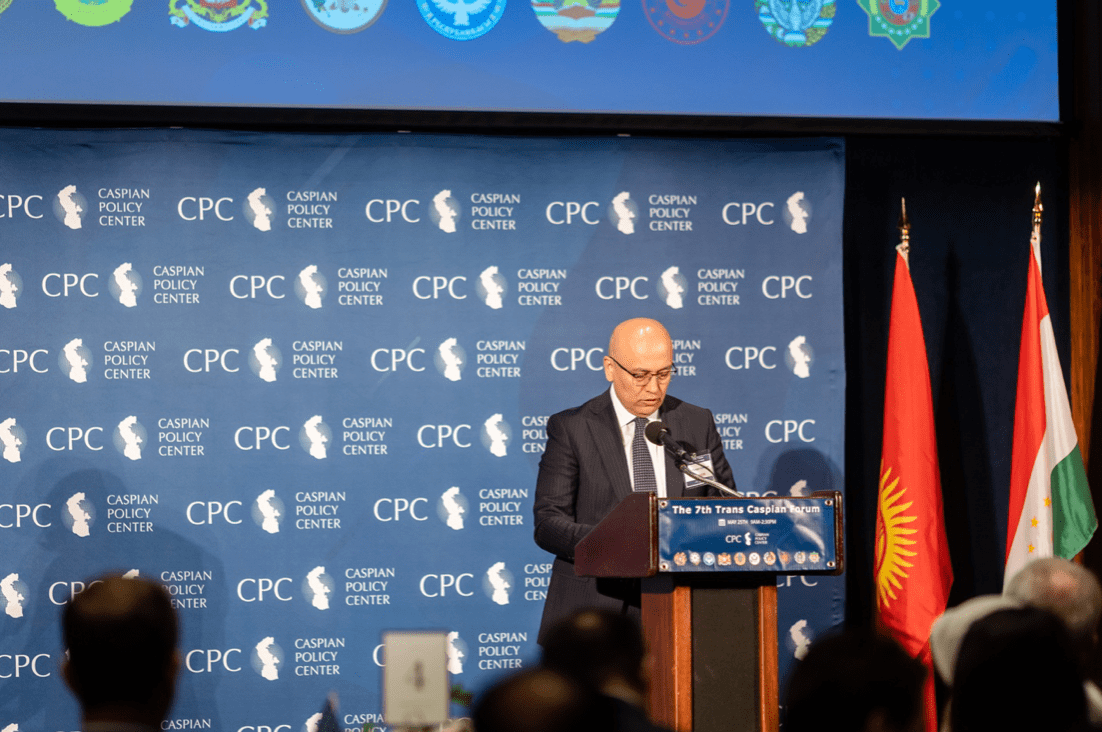
Ambassador Furqat Sidiqov of Uzbekistan discussed the growing engagement between Uzbekistan and the United States in recent years, highlighting the importance of continuing to strengthen these relations.
“We highly value our strategic partnership with the United States, that over the past five years has grown substantially across all areas of bilateral interests,” said Ambassador Sidiqov.
To build upon these relations, Ambassador Sidiqov added that “the United States economic engagement with the region could be best exercised with more active private sector engagement.”
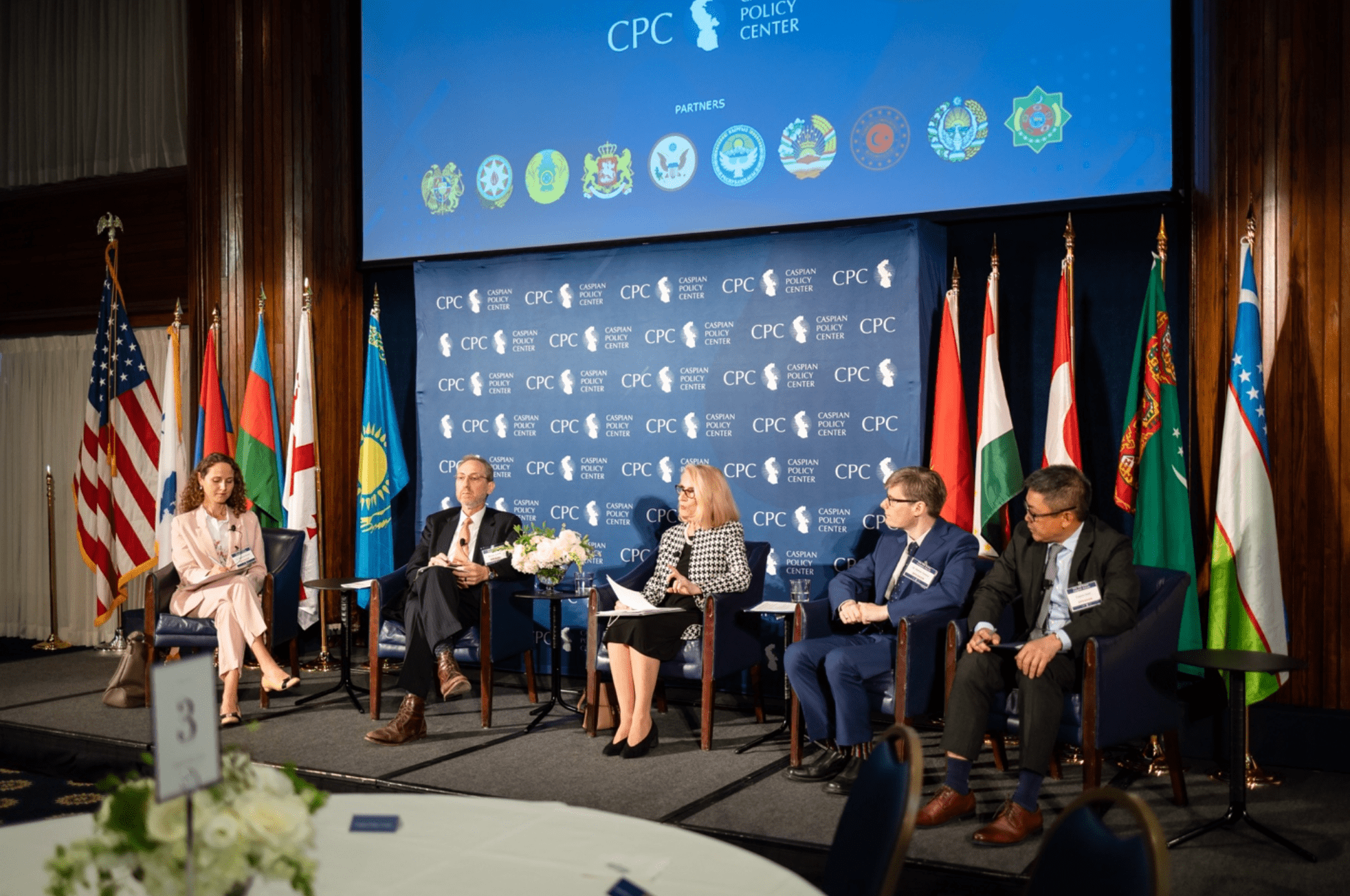
The first expert panel of the event, “Middle Corridor: Caspian and Black Sea Connectivity,” moderated by Marsha McGraw Olive (PhD.), focused on the importance of the Middle Corridor, Black Sea transit routes, and, more broadly, regional connectivity.
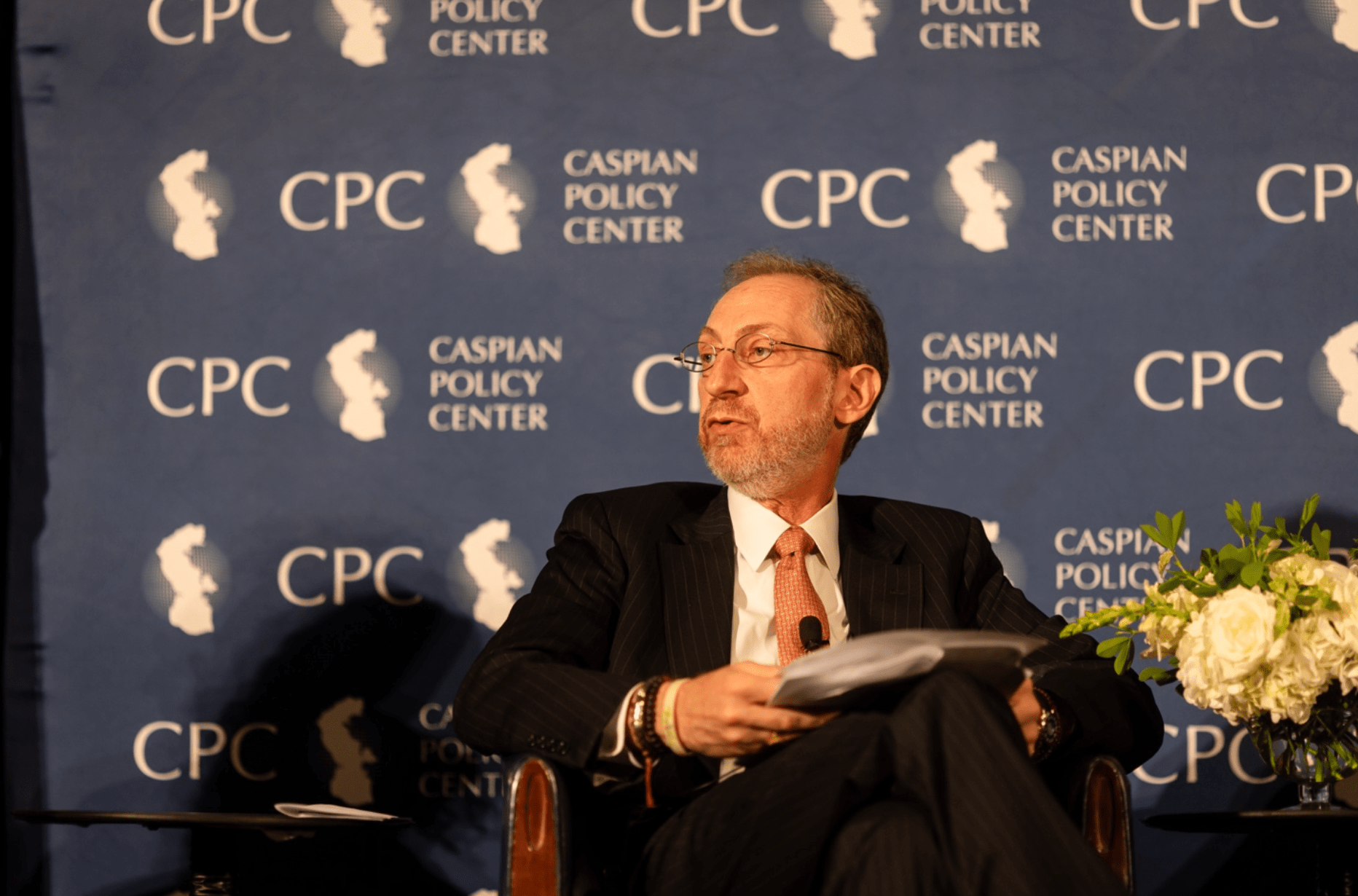
Michael Schiffer, the Assistant Administrator of the Bureau for Asia of the USAID delivered the first opening statement of the panel, describing the economic potential of the Caspian Region.
“As the region grows more open to reform, we are asking hard questions about how to unlock the region’s economic growth potential,” said Michael Schiffer.
But to reach this untapped economic potential, Mr. Schiffer discusses the importance of financial support from the United States.
“Effective connectivity for all will require billions of dollars in public and private investment, and regulatory frameworks.”
“USAID supports the economic sovereignty of the Caucasus and Central Asia.... We're looking to secure new assistance funding to further support work,” said Michael Schiffer.
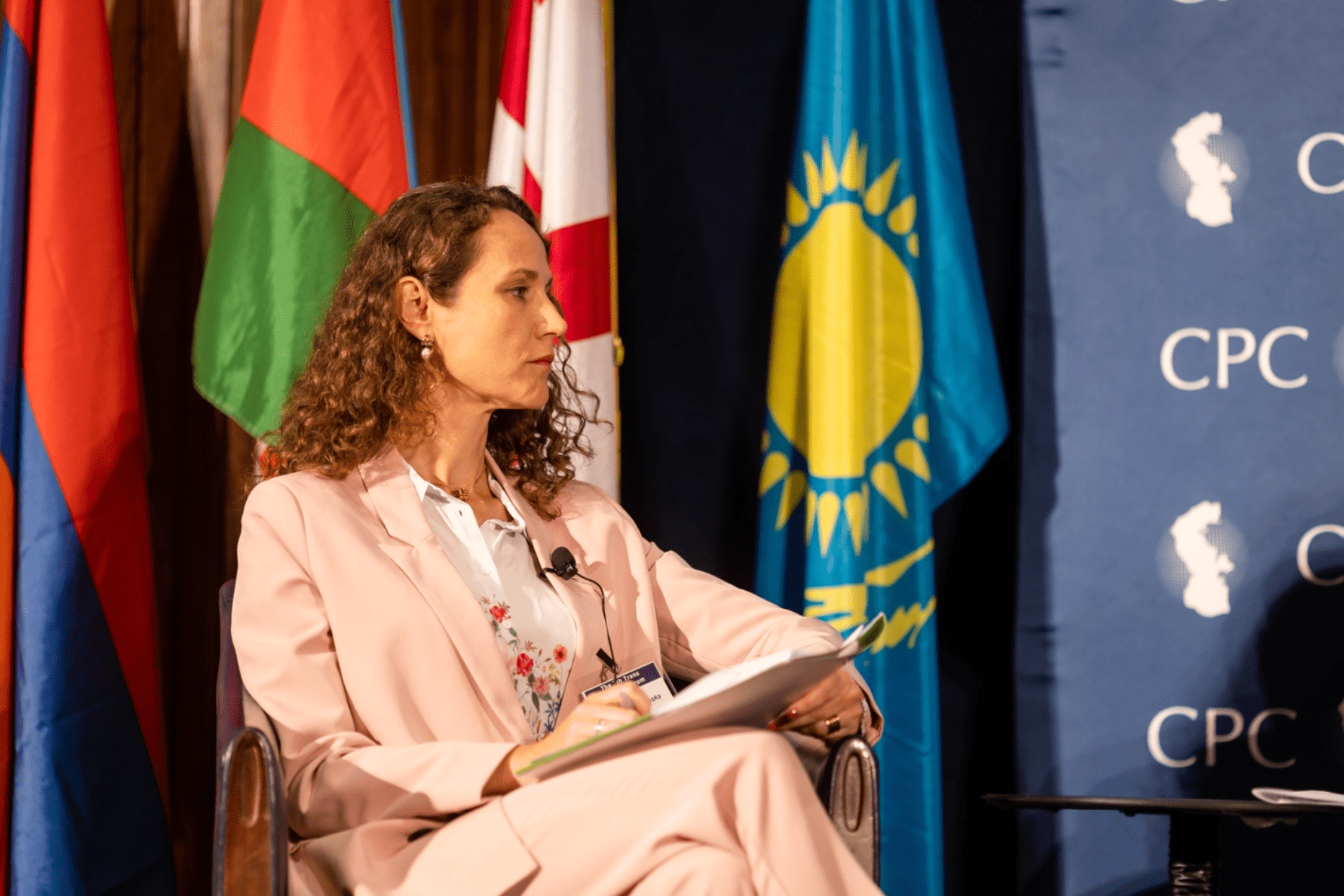
Dr. Dagmara Koska, the Deputy Head of Global Issues and Innovation Section of the European Union (EU), delivered the second opening remarks of the panel.
“Transporation along the Trans-Caspian Corridor is not only important to energy security, but also for peace, democracy, and it has the potential to bring Asia, Europe, and the Middle East together,” Dr. Koska said.
Dr. Koska highlighted the changing dynamics between the EU and the Caspian region,
“Russia’s unprovoked aggression against Ukraine have allowed us to redefine our connection and our partnerships with the rest of the world.”
“Our partnerships in the region are geared towards development of renewable energies, developing energy efficient technologies, but also integration of renewables in the region,” Dr. Koska added.
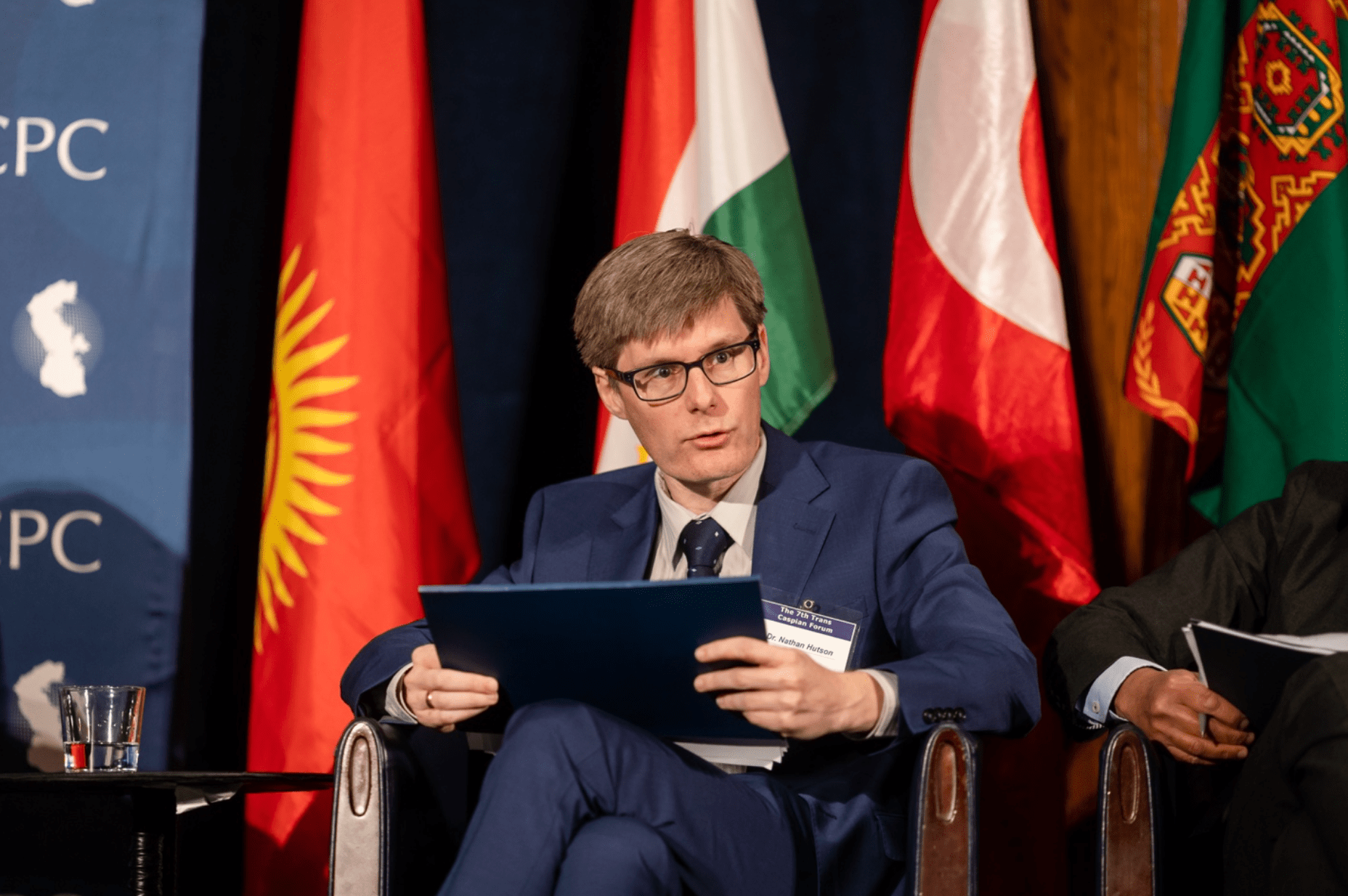
Dr. Nathan Hutson, the Assistant Professor of Urban Planning at the University of North Texas and a long-time Consultant for the World Bank, focused in on the logistical challenges of the Middle Corridor route, and the immense potential it holds if these challenges are addressed.
“The Middle Corridor’s role is far beyond commerce. It is essential for the integration of Central Asia and the Caucasus,” said Dr. Hutson.
“But, Containerization in Central Asia is still not fully developed.”
Dr. Hutson continued, describing other logistical challenges the Middle Corridor faces, “At the moment, we have deficiencies both of Port capacity, vessel capacity, rail infrastructure, bottlenecks and border crossings. We also have a deficit of soft infrastructure when it comes to digitalization.”
However, he also describes the corridor’s potential: “If we can effectively develop the Middle Corridor, it would allow for interesting possibilities of other types of coordination.”
“I'd also argue that Middle Corridor will emerge as a potential corridor for the reconstruction of Ukraine. After the war ends, there will be tremendous need for supplies of steel for construction materials, for glass, for everything, and one of the major sources of these raw materials will be Central Asia. Using the Middle Corridor for the direct reconstruction of Ukraine can become incredibly important,” Dr. Hutson added.
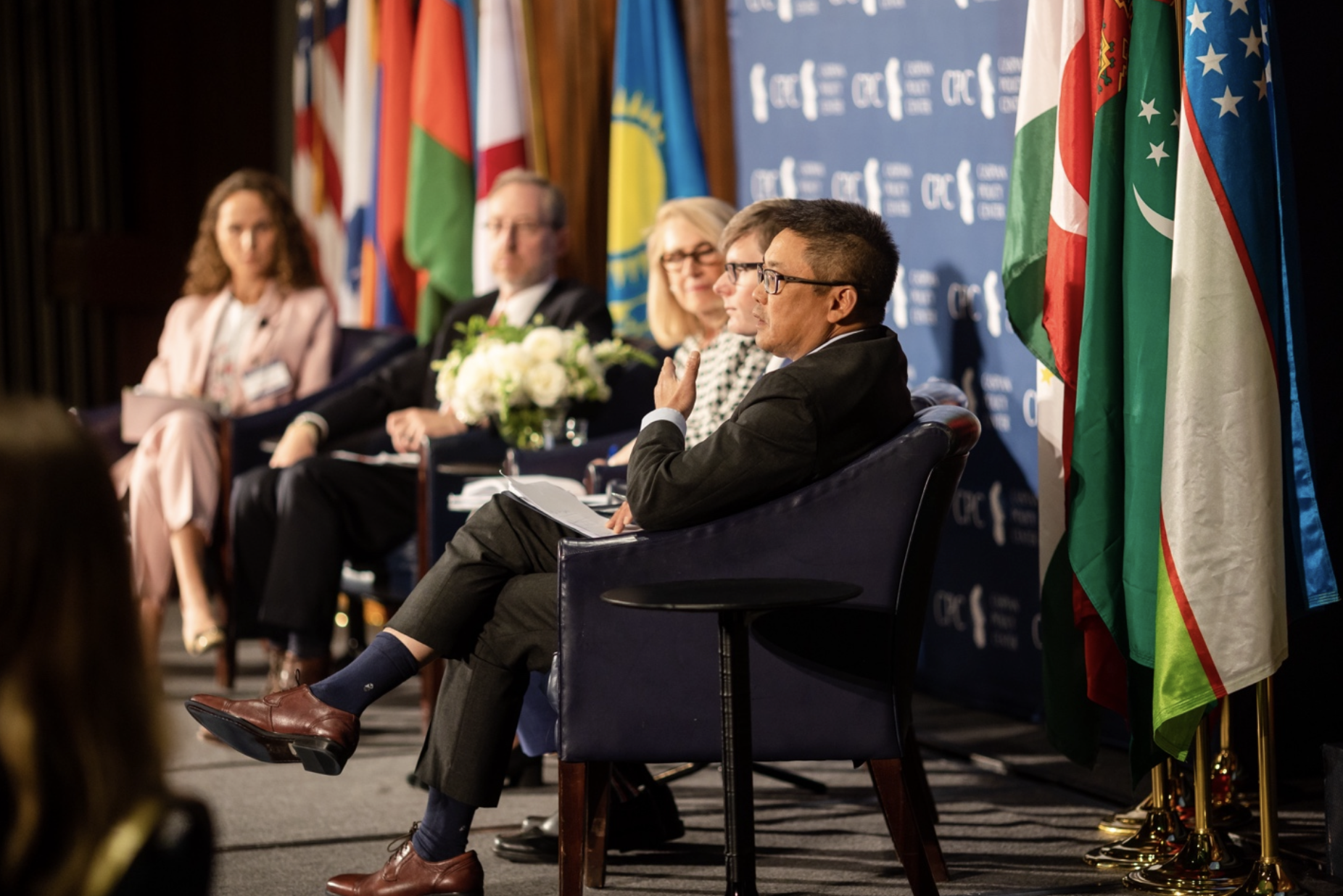
Eugene Seah, the Chief Operating Officer at the Port of Baku offered his expertise on port logistics and challenges.
“When these infrastructures were built, it was enough. But now, we must look forward,” Eugene Seah stated when discussing port capacity.
“We need to increase the change speed of the wagons, and we need to increase the capacity... We need to create a unified road network system that is high speed, sustainable, and reduces carbon emissions.”
“The Middle Corridor income is growing; the opportunities are there... And, the challenges are there. But, we have the capacity to overcome them,” Eugene Seah added.
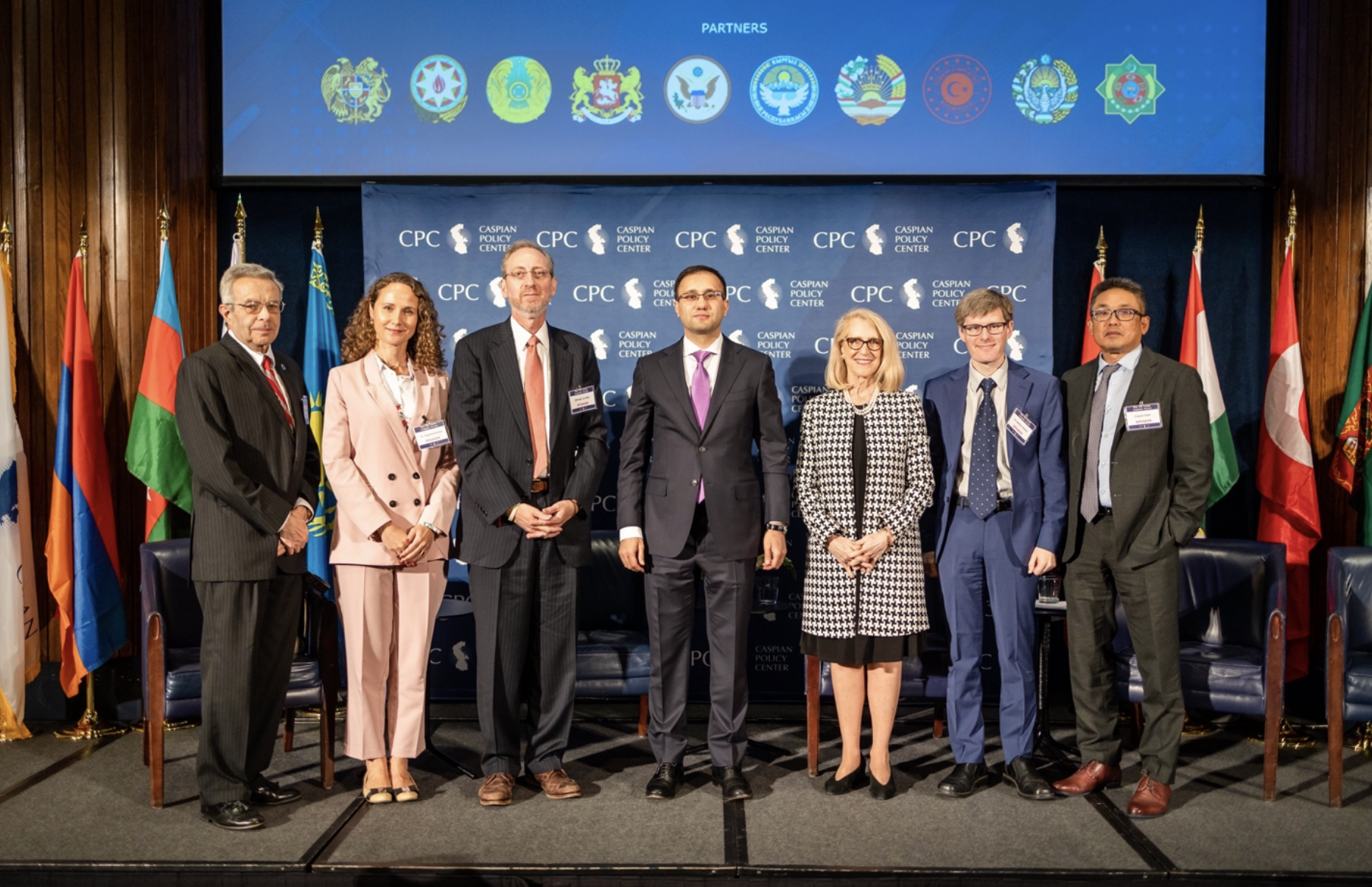
The second expert panel on “Caspian Energy” included Caspian Policy Center’s CEO Efgan Nifti, Head of International Affairs of BP America Robert Scher, Non-Resident Senior Fellow at the Atlantic Council Global Energy Center Dr. Robert F. Ichord, Jr., and Jubo Turashvili, Head of the Energy Policy and Investment Projects Department at the Ministry of Economy and Sustainable Development of Georgia.
During his opening remarks, Efgan Nifti stressed that “the Caspian region has huge energy potential, which has been proven in the last 30 years - but now, it’s time to begin discussing other areas of energy diversification.”
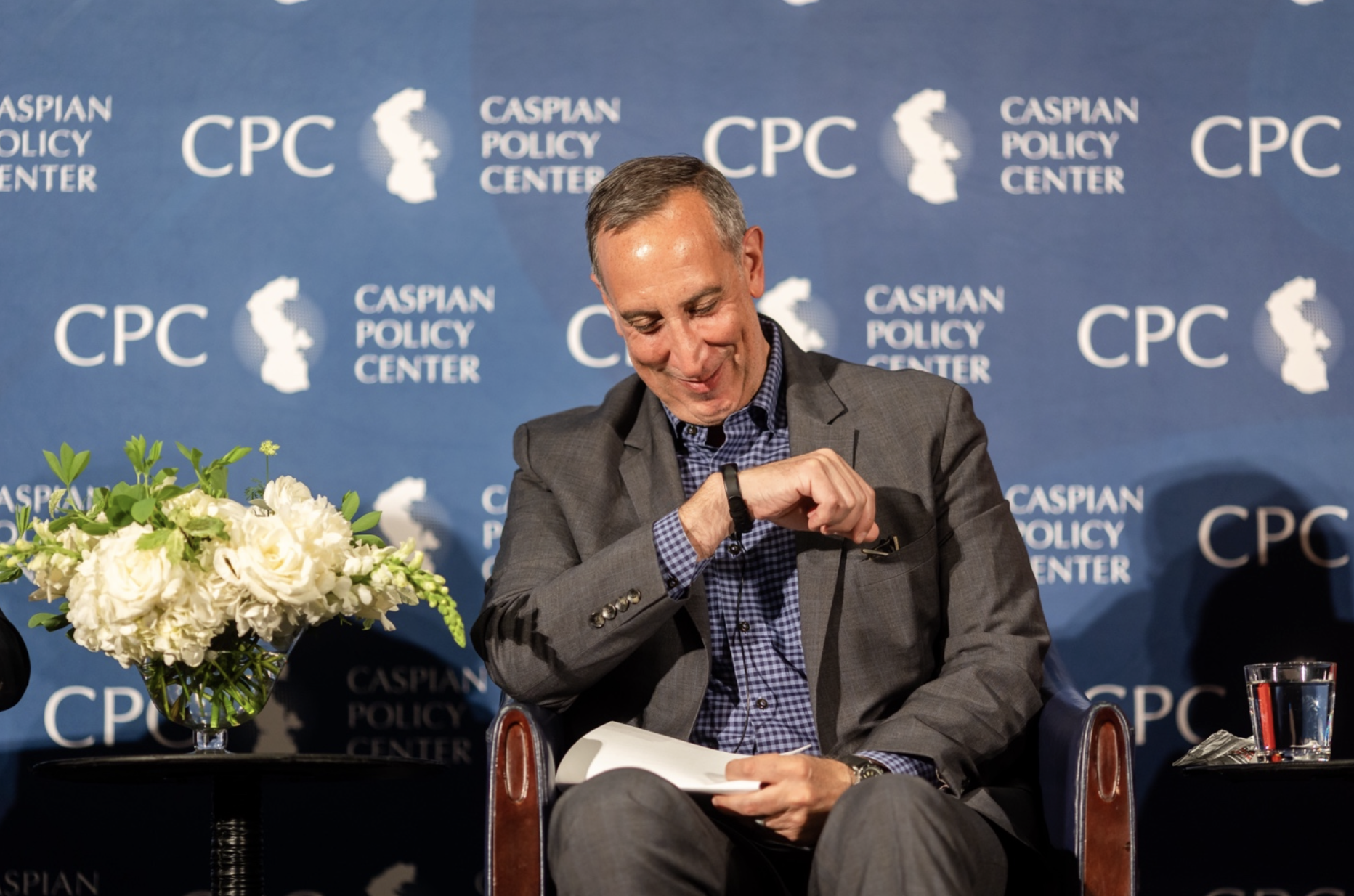
BP America’s Robert Scher discussed BP’s involvement in the Caspian region in extracting hydrocarbon resources, as well as exploring its vast renewable energy potential. While discussing BP’s important role in Azerbaijan’s natural gas exports, Scher highlighted that “after just over two years since the launch of the Southern Gas Corridor, the Shah Deniz field has proven to be a significant source of gas for Europe and Türkiye.”
“While the original long-term contracts were for just over 10 BCM to flow to western Europe, we have been able to reliably expand those flows to 12 BCM on a daily basis going to Europe,” he further added. Scher also stressed the importance of green energy transition: “We have to make this transition - but we need to do so in a predictable and orderly way that doesn’t sacrifice affordability and insecurity of energy supply.” While talking about BP’s ongoing initiatives in this sphere, Scher specifically pointed BP’s close involvement on Project Sunrise, a solar power plant in Azerbaijan, as well as decarbonization efforts for balancing energy production.
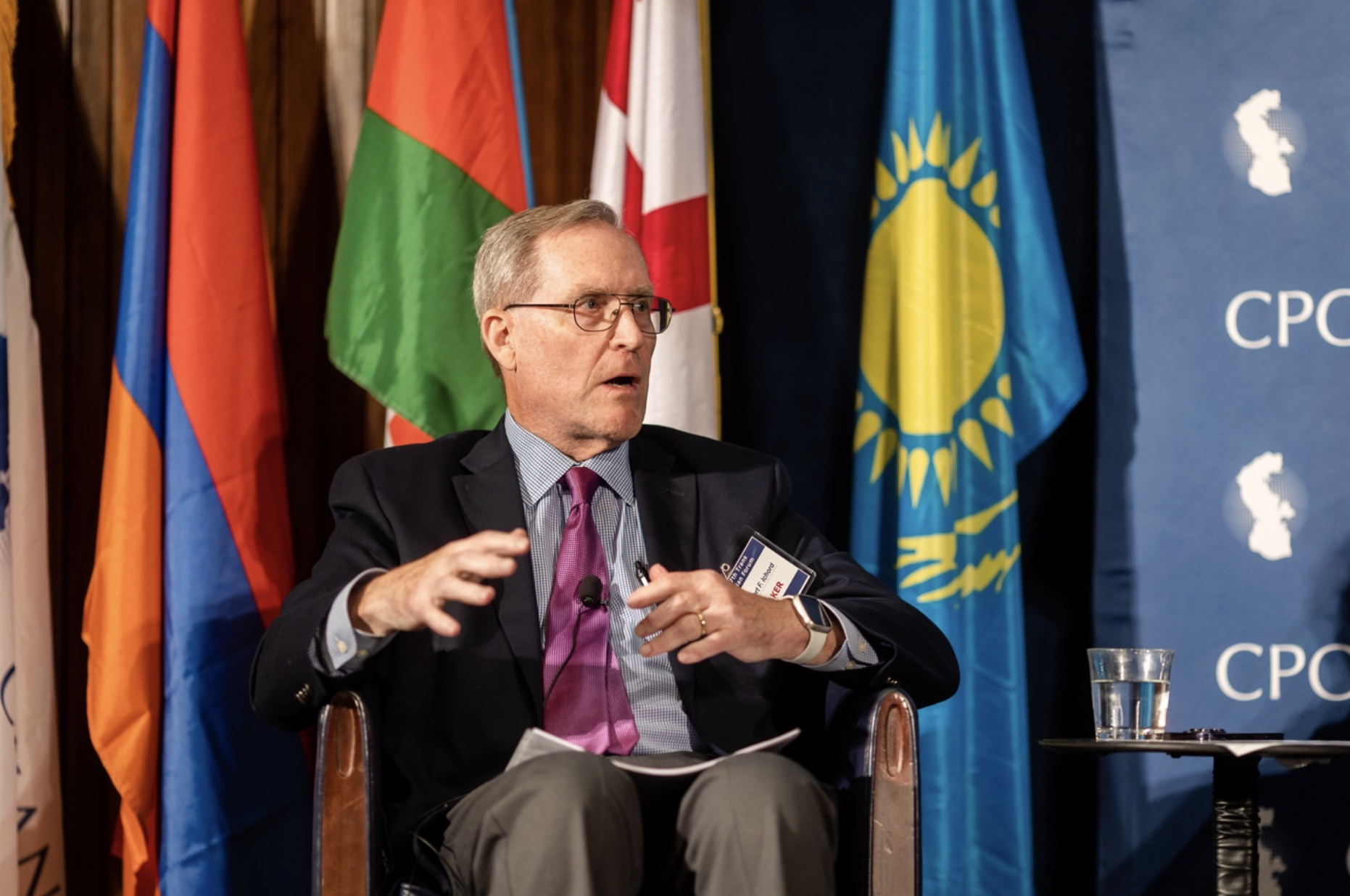
Dr. Robert Ichord focused on the Caspian region’s renewable energy potential: “For the resource potential for the region, there is large solar and wind resources that can be developed.” He stressed that looking ahead, “major investments are needed, but now, larger projects are being developed with the potential of 15 gigawatts.”
“Nuclear is a longer-term option- but it is an option that these countries should be looking at more closely,” added Ichord. Commenting on the importance of developing the regional capacity in technological, institutional, and human resources sectors, Ichord noted that "there are not many U.S. companies and investors, so hopefully this will change.”
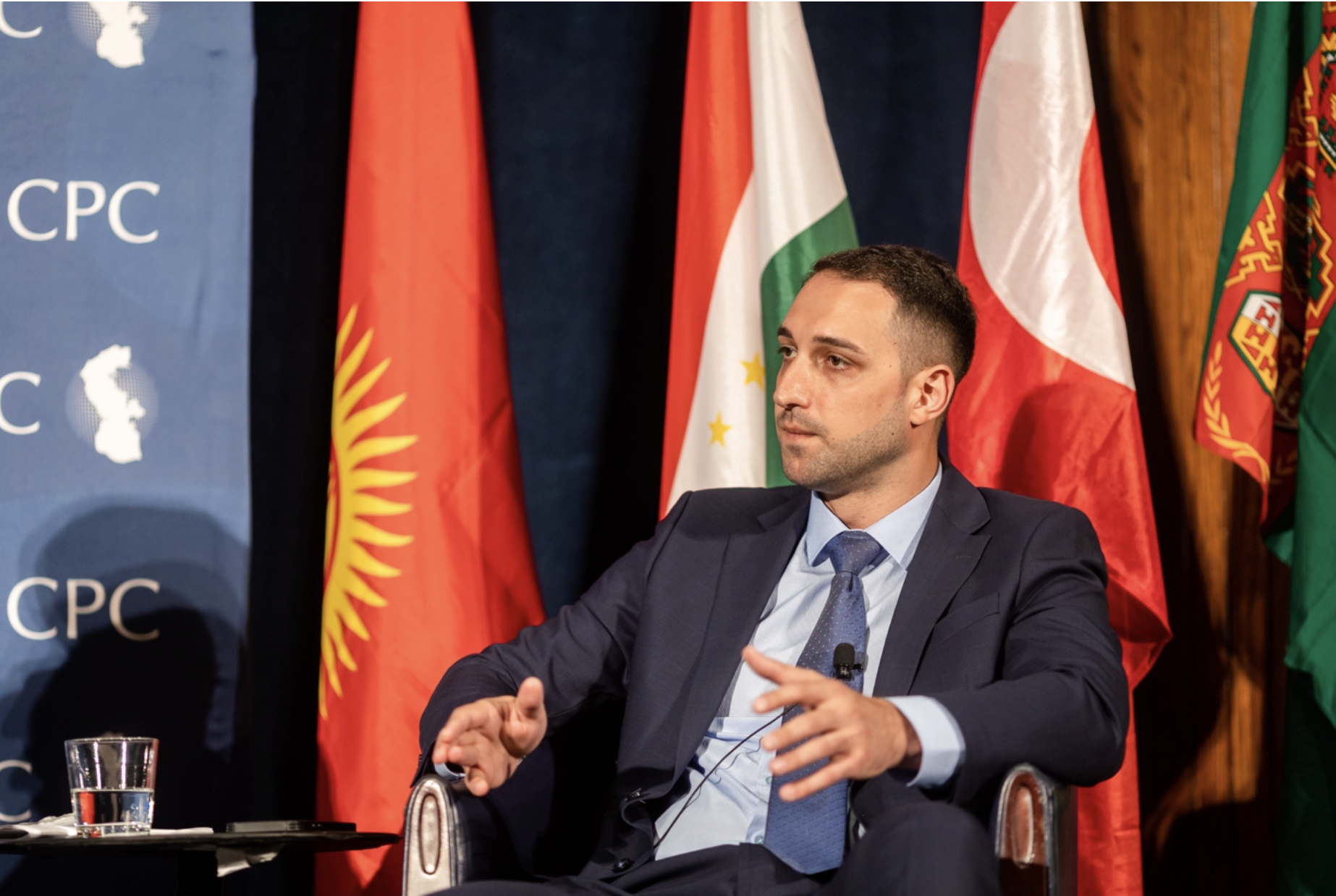
Jubo Turashvili discussed Georgia’s current initiatives in attaining renewable energy. He emphasized that there are currently more than a hundred feasibility studies being conducted in Georgia on producing renewable energy and electricity. Specifically, Turashvili detailed the importance of the agreement reached among the governments of Georgia, Azerbaijan, Hungary, and Romania on the construction of the Black Sea submarine electric cable. “We have huge renewable energy resources- we have new wind, new solar, and new potential with the new Black Sea electric cable,” added Turashvili. He further stressed that these initiatives will bring more competition to both Georgia’s domestic and export electricity markets.
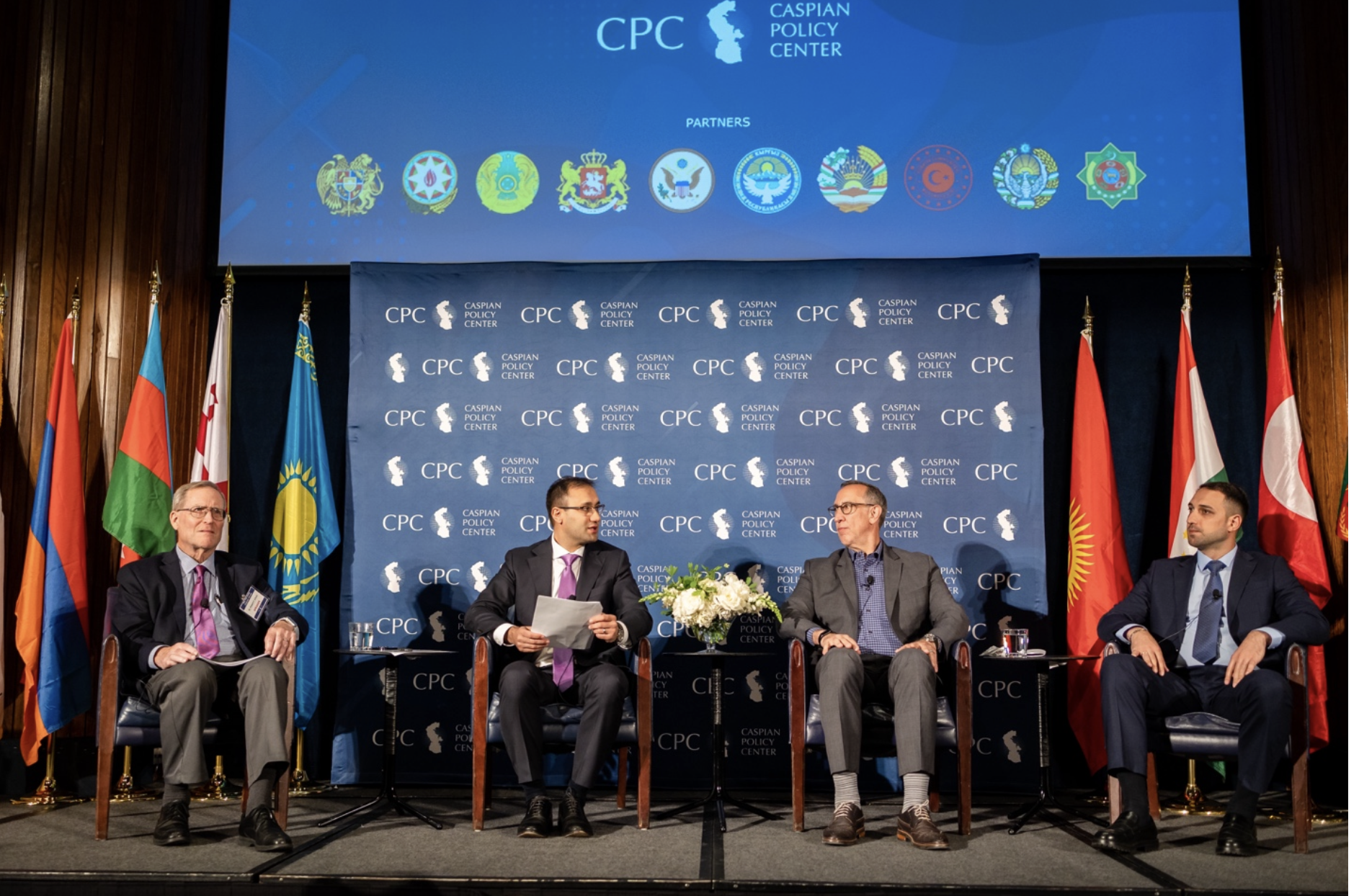
Efgan Nifti concluded the event by thanking the expert panelists, embassies, and the over-200 guests for their continued efforts in building a stronger U.S.-Caspian Region partnership. The 7th Trans-Caspian Forum served as a platform that underscored the evolving landscape of opportunities and challenges within the Caspian Region, amid a period marked by global uncertainty and transition. With the active participation of government officials from the United States and the Caspian Region, this forum has emerged as an avenue for constructive dialogue and meaningful engagement.
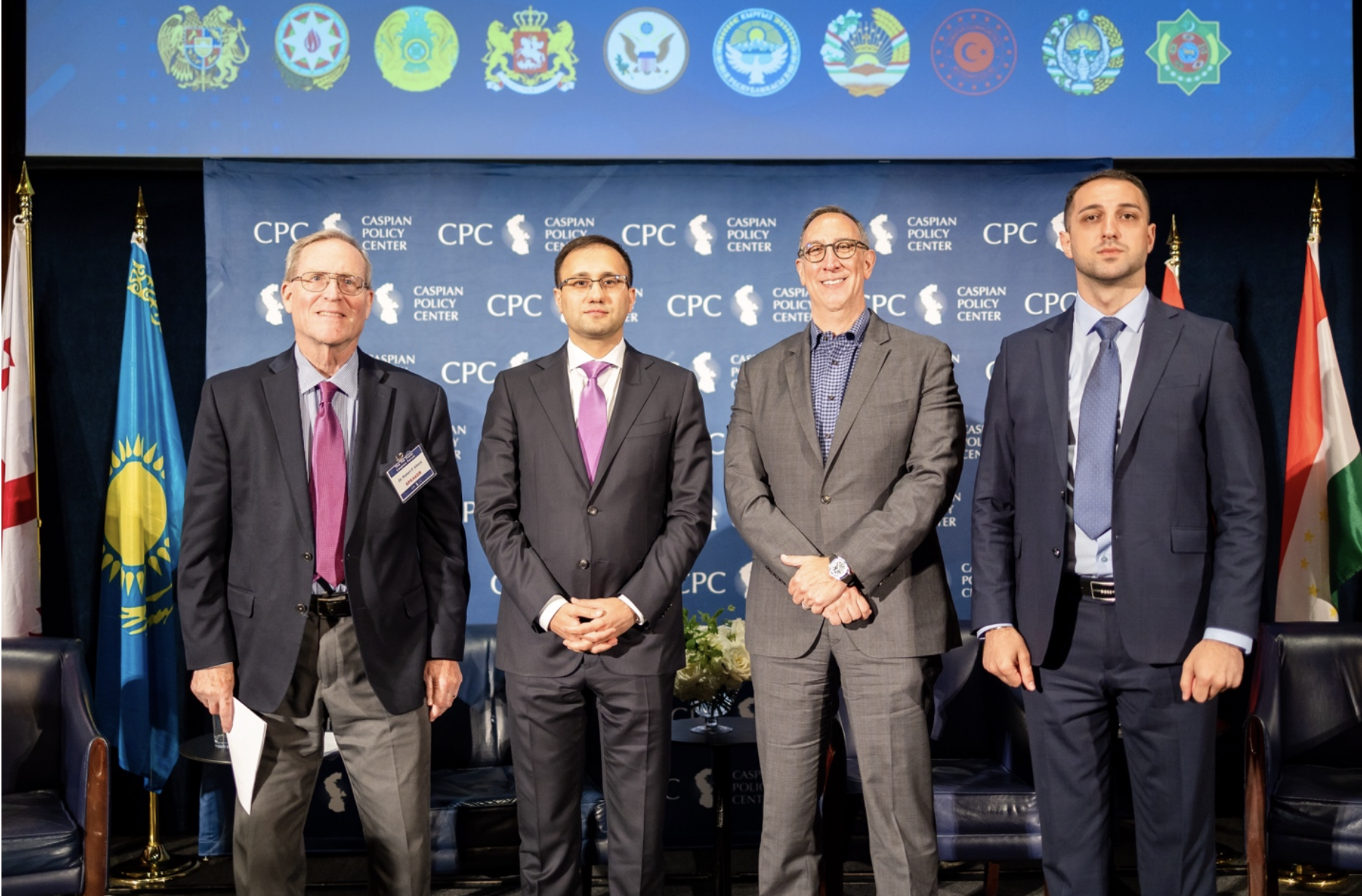
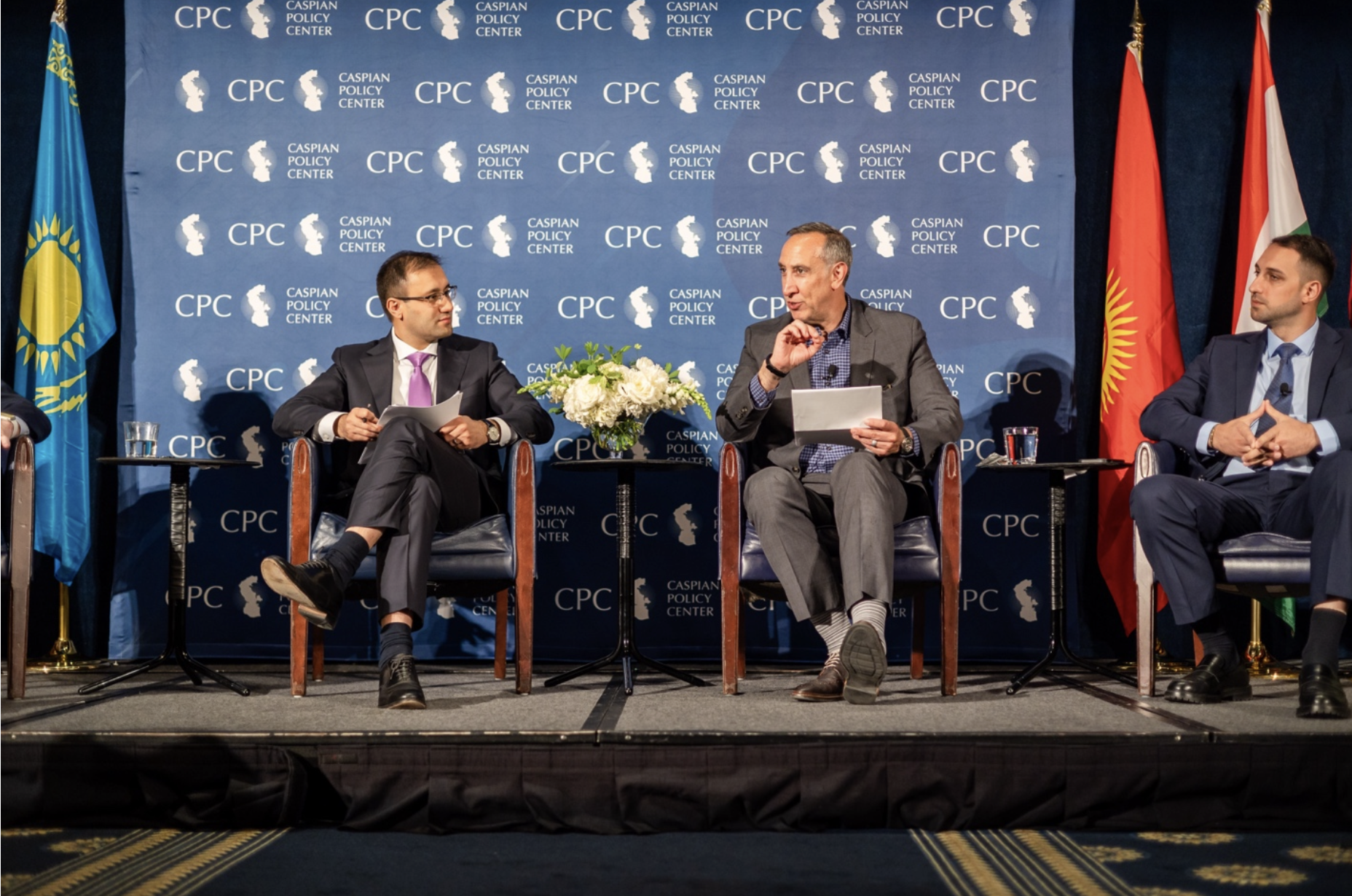 Efgan Nifti (Left), Bob Scher (Right)
Efgan Nifti (Left), Bob Scher (Right)
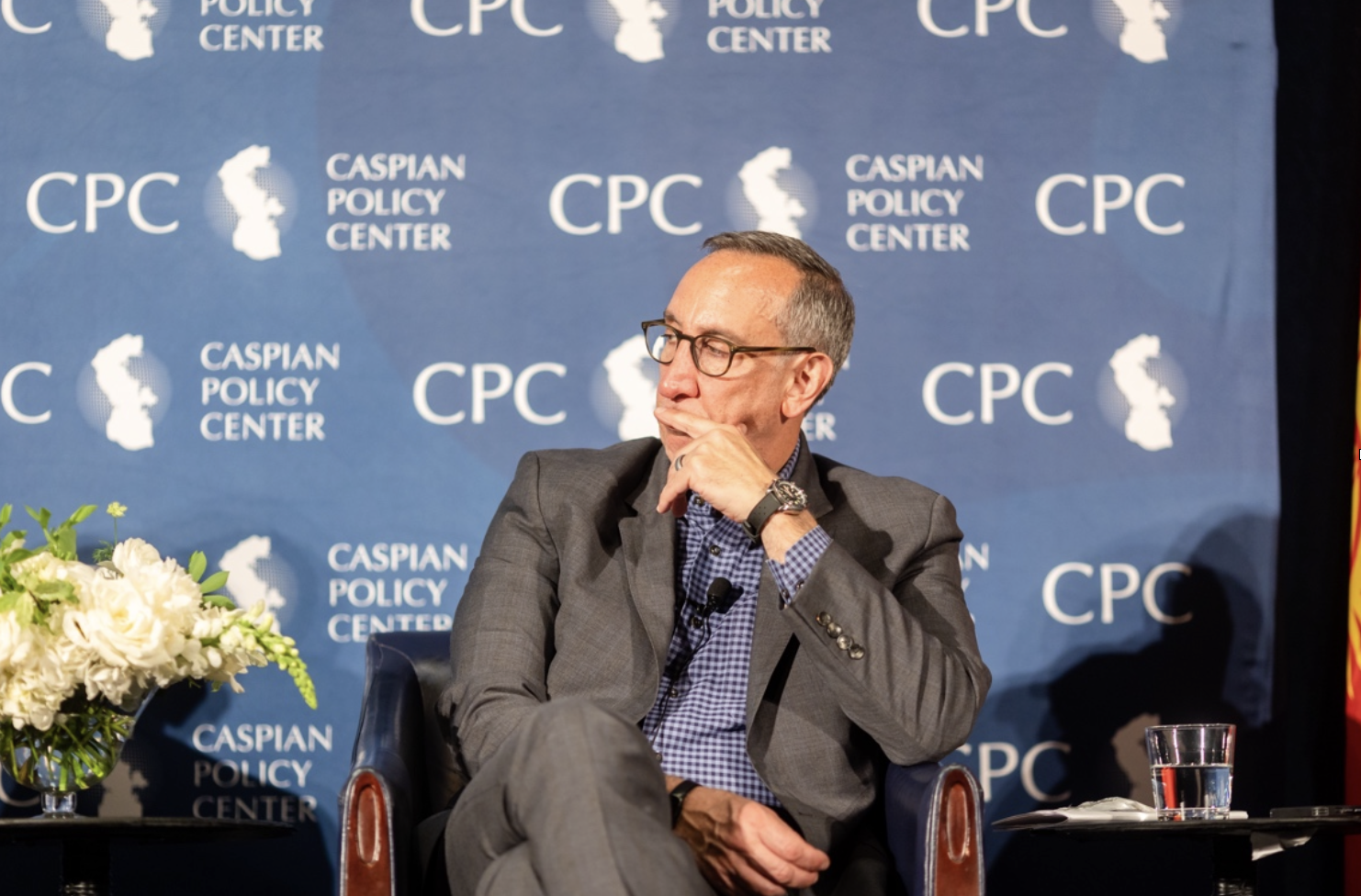 Bob Scher
Bob Scher
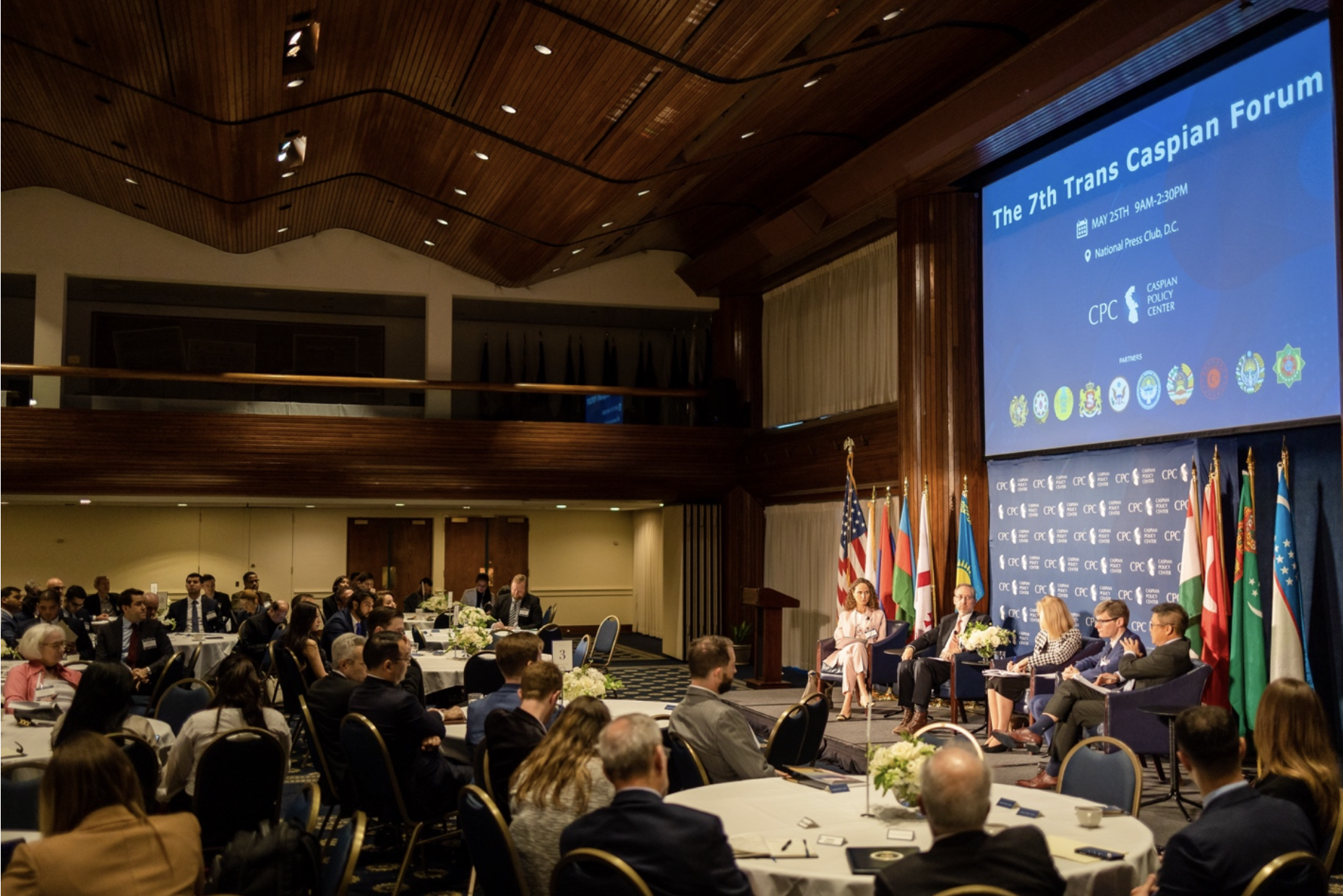 Dr. Dagmara Koska, Michael Schiffer, Dr. Marsha McGraw Olive, Dr. Nathan Hutson, Eugene Seah
Dr. Dagmara Koska, Michael Schiffer, Dr. Marsha McGraw Olive, Dr. Nathan Hutson, Eugene Seah
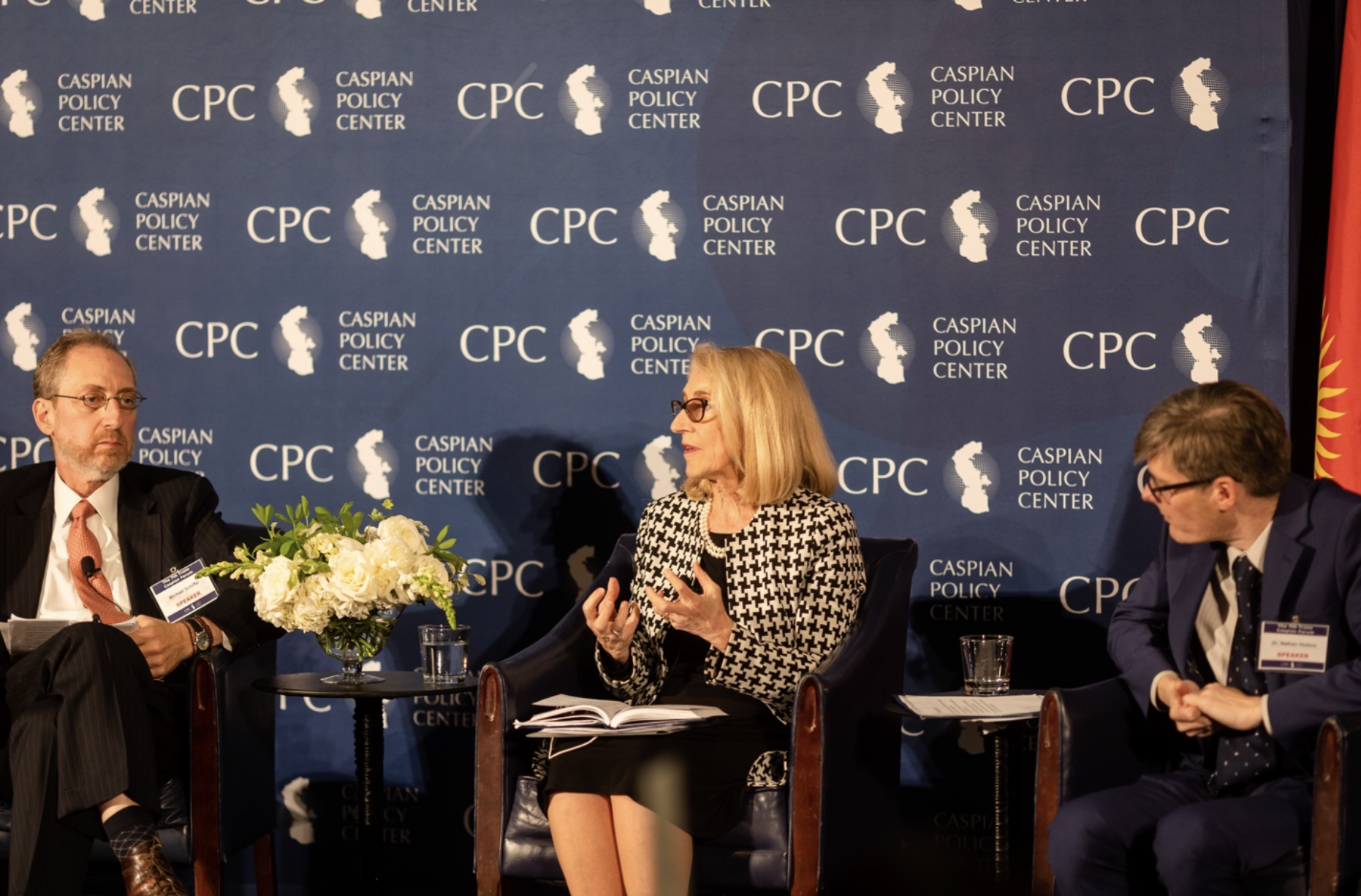 Michael Schiffer, Dr. Marsha McGraw Olive, Dr. Nathan Hutson
Michael Schiffer, Dr. Marsha McGraw Olive, Dr. Nathan Hutson
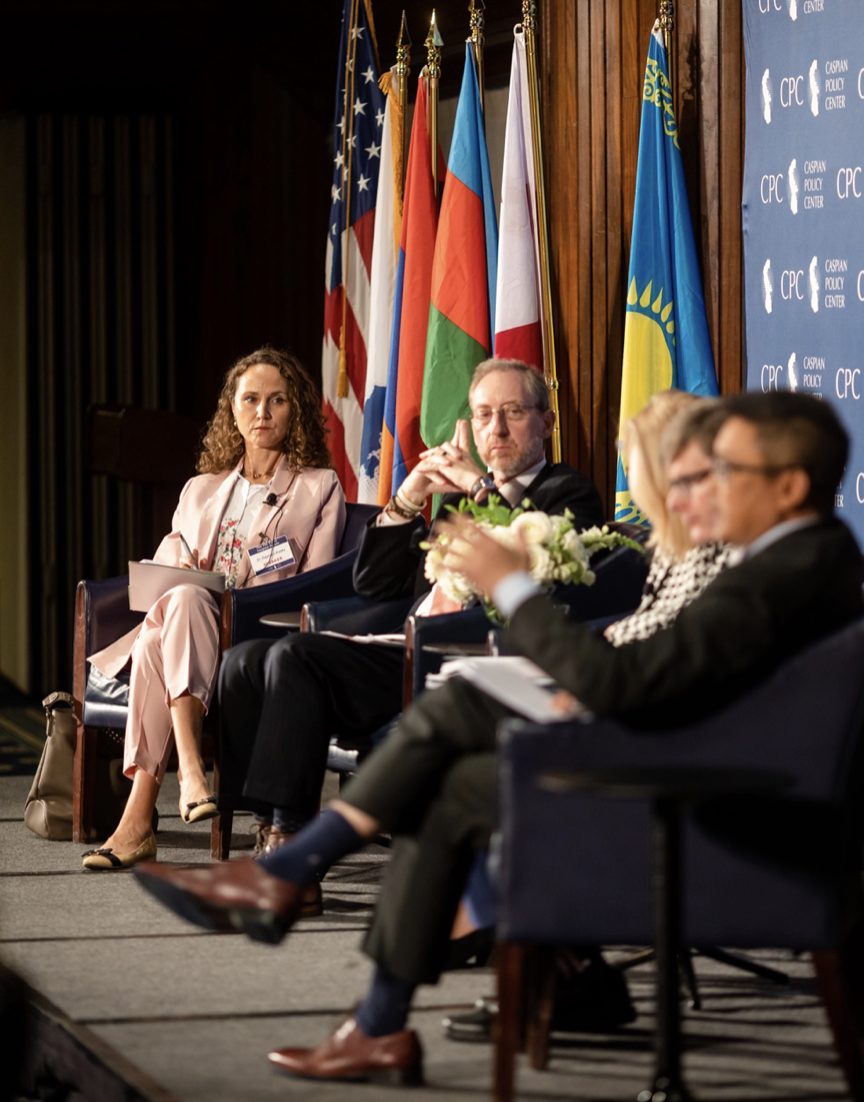 Dr. Dagmara Koska, Michael Schiffer, Dr. Marsha McGraw Olive, Eugene Seah
Dr. Dagmara Koska, Michael Schiffer, Dr. Marsha McGraw Olive, Eugene Seah
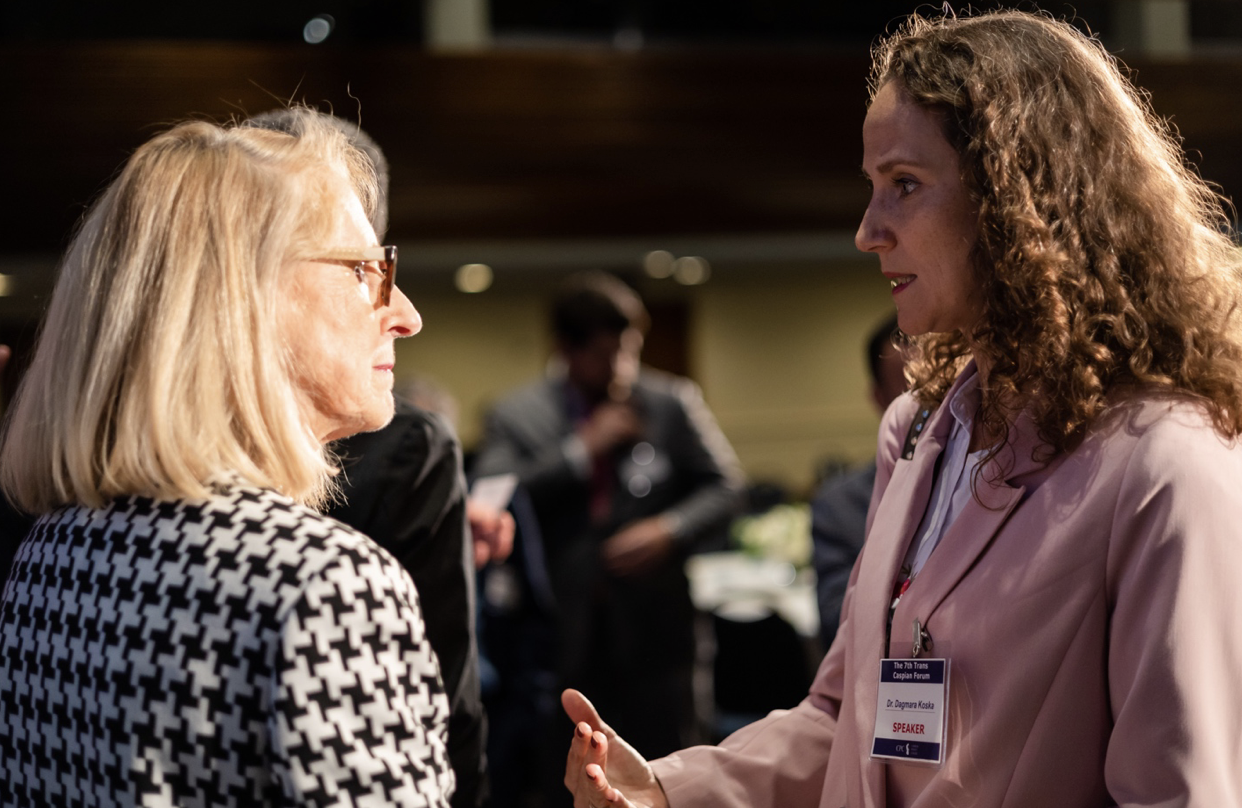 Dr. Marsha McGraw Olive (Left), Dr. Dagmara Koska (Right)
Dr. Marsha McGraw Olive (Left), Dr. Dagmara Koska (Right)
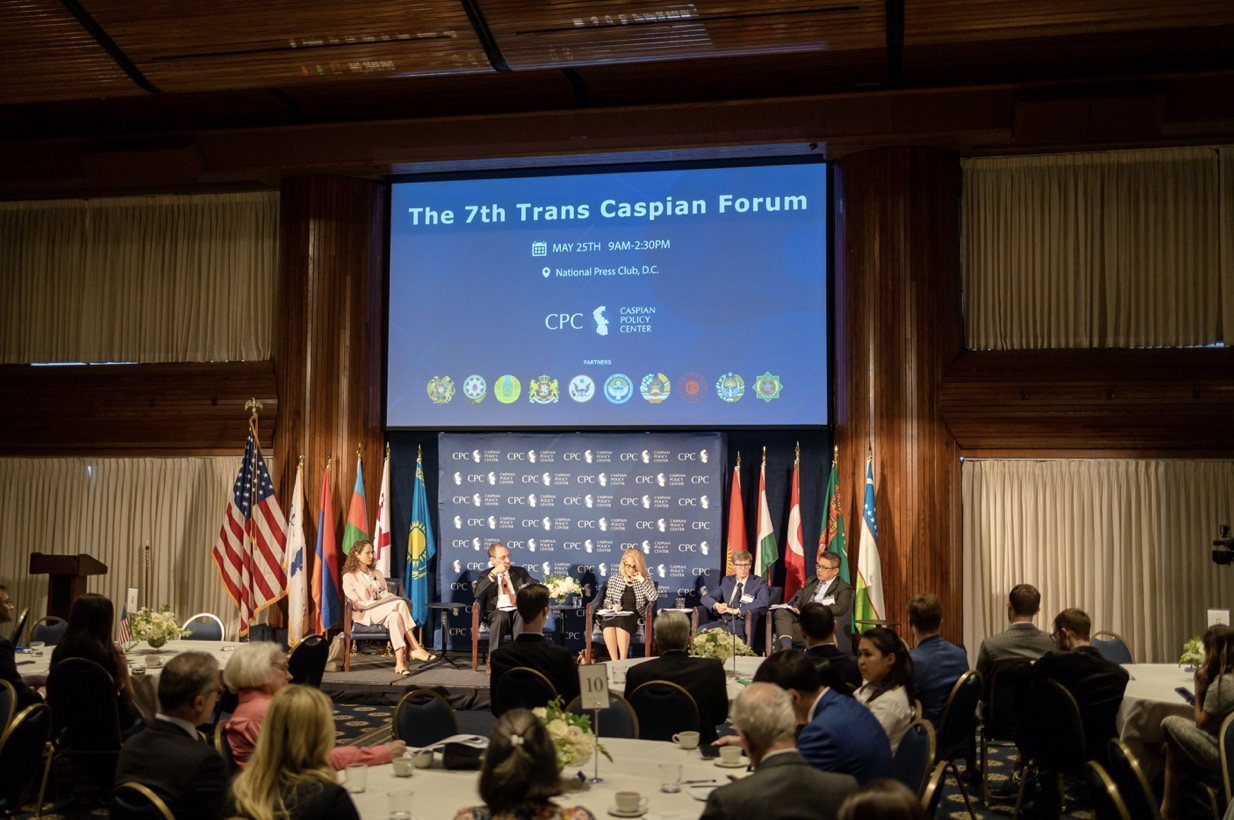 Dr. Dagmara Koska (Left), Michael Schiffer, Dr. Marsha McGraw Olive, Eugene Seah (Right)
Dr. Dagmara Koska (Left), Michael Schiffer, Dr. Marsha McGraw Olive, Eugene Seah (Right)
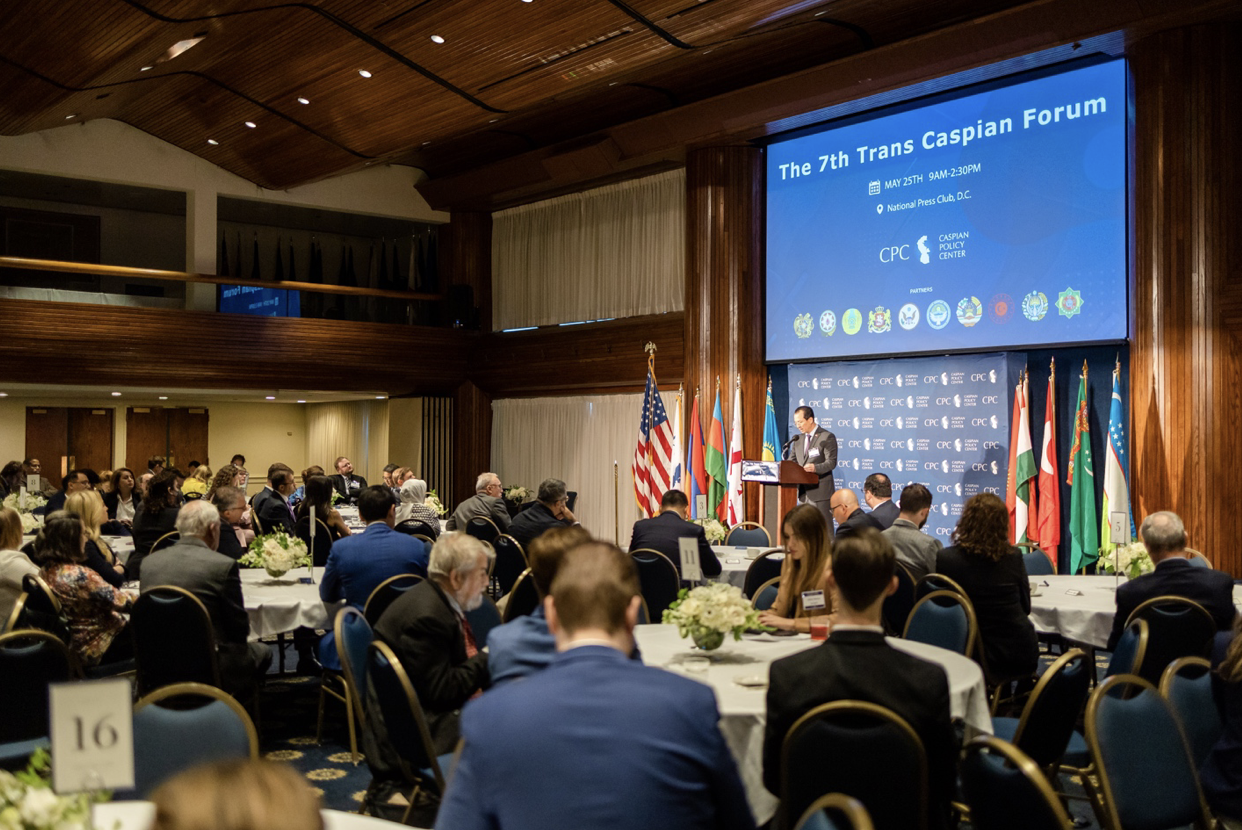 Ambassador Bakyt Amanbaev of Kyrgyzstan
Ambassador Bakyt Amanbaev of Kyrgyzstan
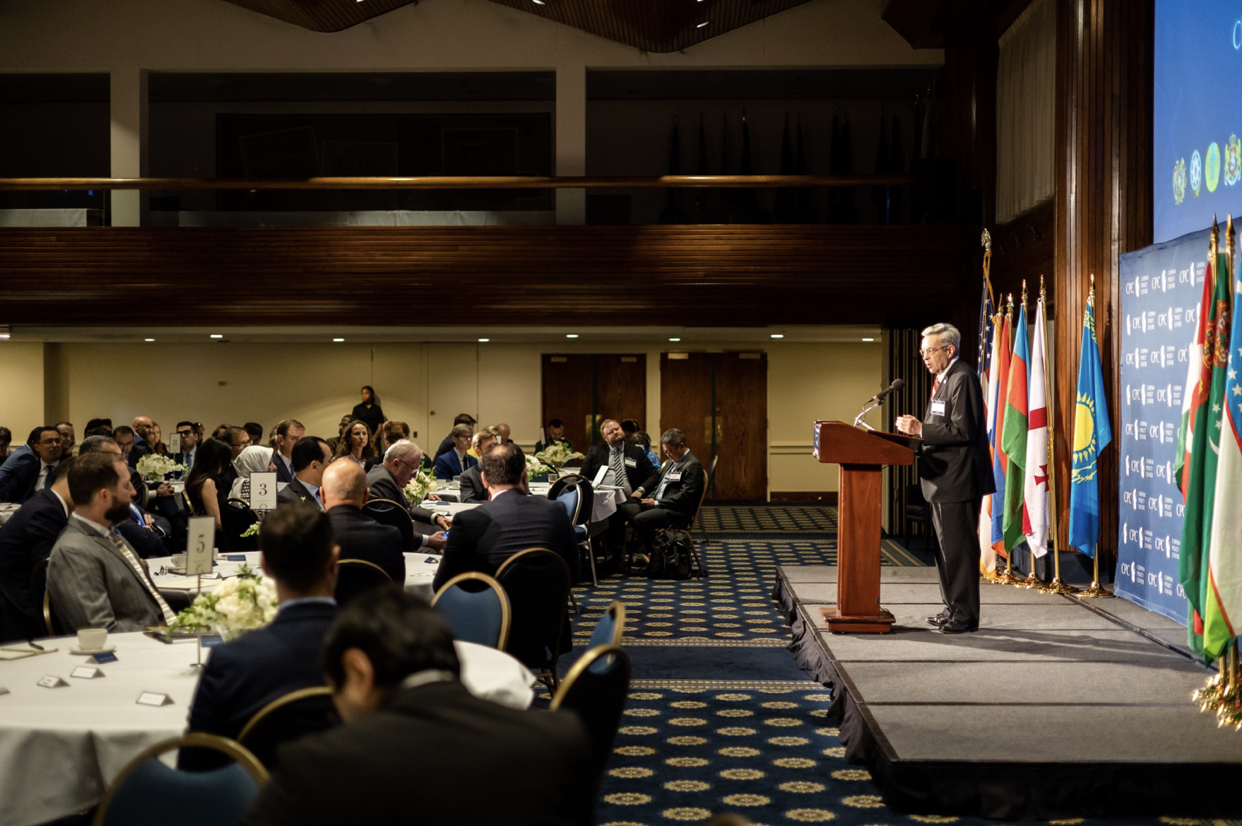 Ambassador (ret.) Richard Hoagland
Ambassador (ret.) Richard Hoagland
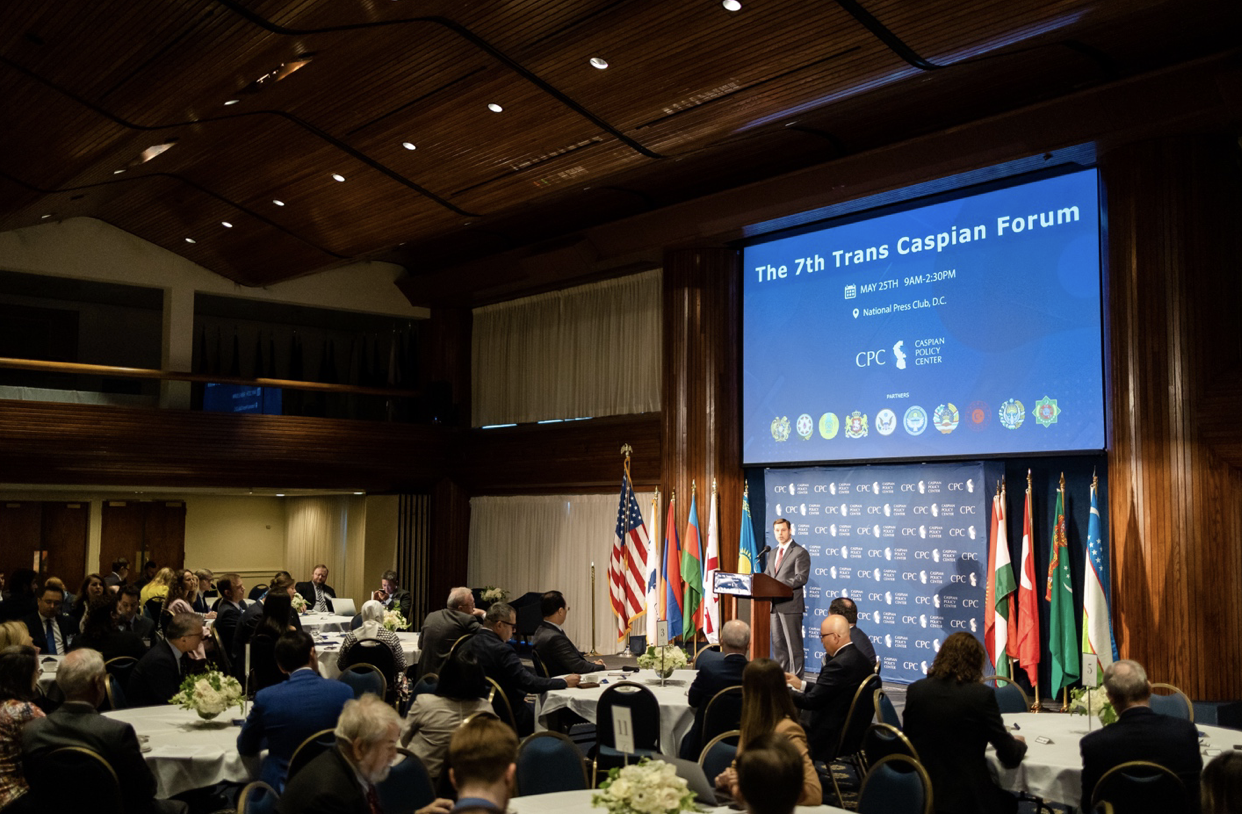 Brian Stimmler
Brian Stimmler
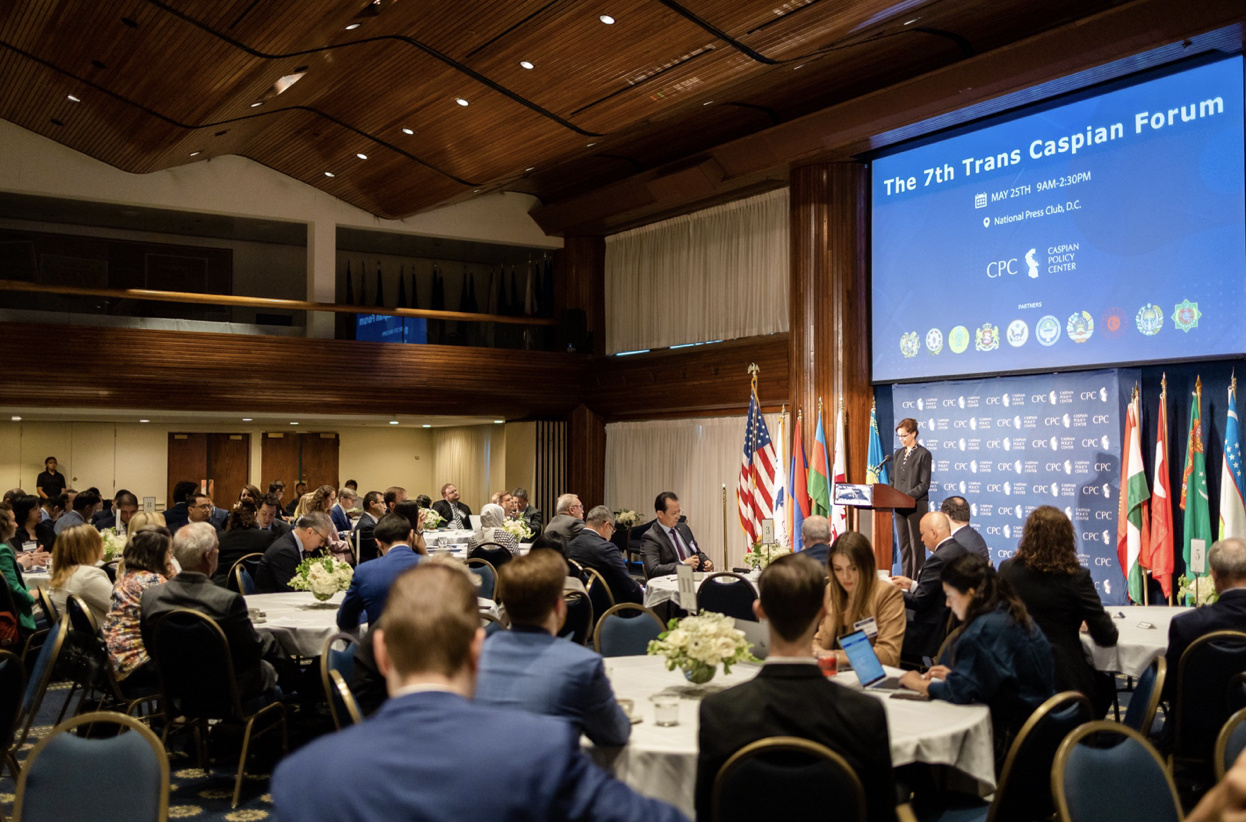 Laura Lochman
Laura Lochman
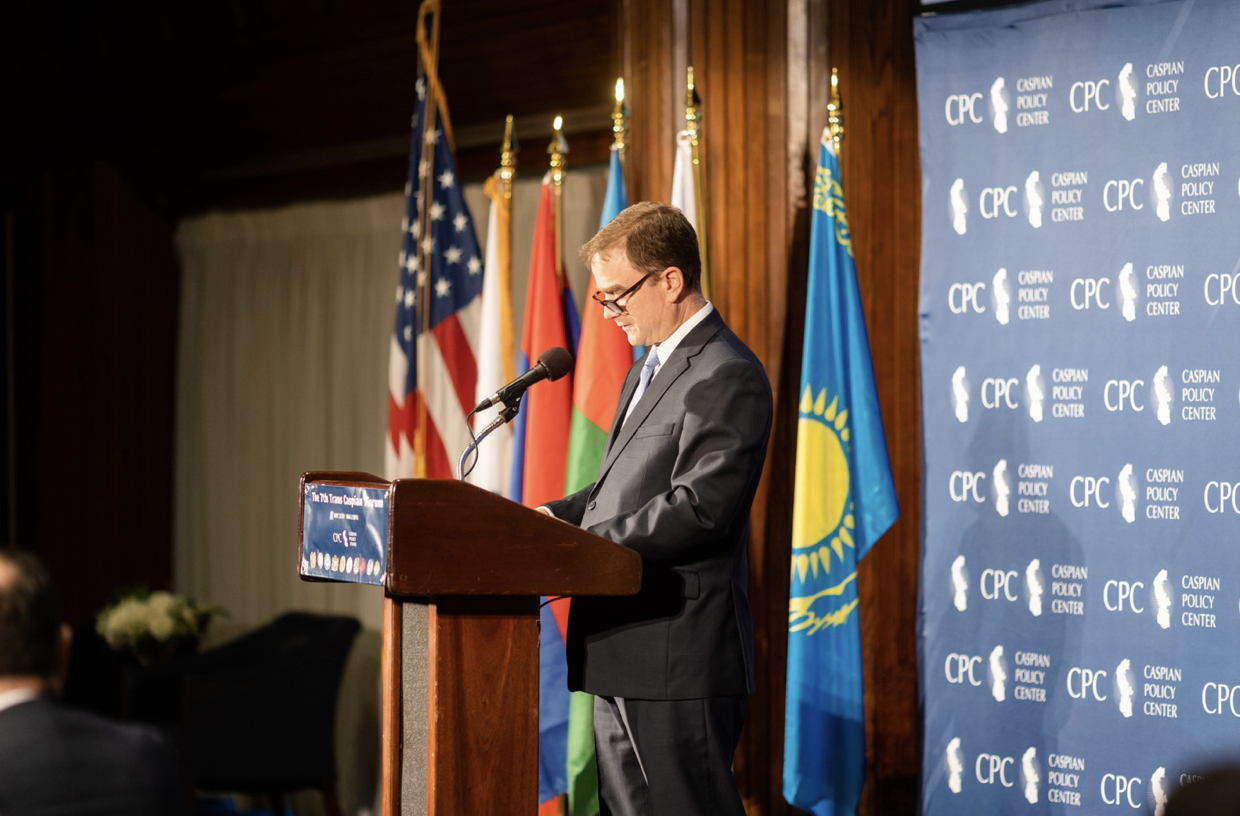 Nicholas Berliner
Nicholas Berliner